Sanford Scholar Award Program
The Sanford Institute for Empathy and Compassion Sanford Scholar Award Program provides research opportunities to UC San Diego medical, pharmacy, and graduate public health students to conduct basic and/or applied research that aims to understand and/or increase empathy.
In addition to conducting research, students engage in a summer program comprised of didactic workshops on the science and practice of empathy and compassion, a compassion training series, a cultural humility series, and an ethics workshop. The award provides financial support to students for their compassion-related research projects under the guidance of a faculty mentor. Mentors assist scholars in carrying out their research by providing guidance at all stages of the project, submitting project information to the IRB once funded, and participating in specially devised compassion trainings, among other responsibilities. In the process, students benefit from mentor guidance and expertise, faculty benefit from funded student support for projects, and the community at-large benefits from impactful research findings.
Meet our Sanford Scholars
2025-26 Scholars
Scholar: Sally Baek

Faculty Mentor: Carlos Lago-Hernandez, MD
Project Title: Examining the Impact of Financial Hardship on Mortality, Healthcare Utilization, Social Risk Factors and co-prevalence with other Financial Toxicity Domains Using National Health Interview Survey Data
Project Description: This study will examine the sociodemographic and clinical risk factors associated with financial hardship and its impact on healthcare utilization, mortality, and other social risk factors, such as transportation and food insecurity. By analyzing data from the National Health Interview Survey (NHIS), the research aims to provide insights into financial hardship’s role in health disparities and inform strategies to improve healthcare access and outcomes.
Scholar: Johan Carrascoza-Bolanos

Faculty Mentor: Melody Schiaffino, MD
Project Title: Analyzing concerns, language barriers, and perceived empathy & compassion in geriatric patients receiving radiotherapy.
Project Description: This exploratory mixed methods study will examine patient perception of provider empathy and compassion during consult visits following a cancer diagnosis. Topics that will be discussed include treatment plan, duration, side effects, and patient concerns among geriatric patients receiving radiotherapy. We will include patients that are racially and ethnically diverse, with a focus on patients who are limited English proficient (LEPs).
Scholar: Alice Chien

Faculty Mentor: Sheila Mody, MD
Project Title: Empathy in Pain Management: Pain related to local anesthetic administration for Nexplanon and IUD placement -- A randomized control trial of buffered compared to unbuffered 1% lidocaine
Project Description: Over the past year, patients have taken to social media to advocate for pain relief during IUD/Nexplanon insertion and express their dissatisfaction with the lack of physician empathy. This project aims to determine whether buffered lidocaine decreases pain associated with administering local anesthesia prior to IUD/Nexplanon placement, as well as assess how perceived physician empathy affects patient satisfaction and pain experience.
Scholar: Adam Clements
Faculty Mentor: Emily Cidambi, MD
Project Title: Improving Self-Compassion, Mental Health, and Injury Prevention in Ballet Dancers
Project Description: This project aims to enhance self-compassion in adolescent dancers by incorporating Cognitive Behavioral Therapy (CBT), alongside a Pilates-based ankle strengthening program. Additionally, we seek to establish pointe shoe clearance criteria based on ankle strength and specific ballet movement patterns to help prevent common overuse injuries.
Scholar: Danielle Hjerpe
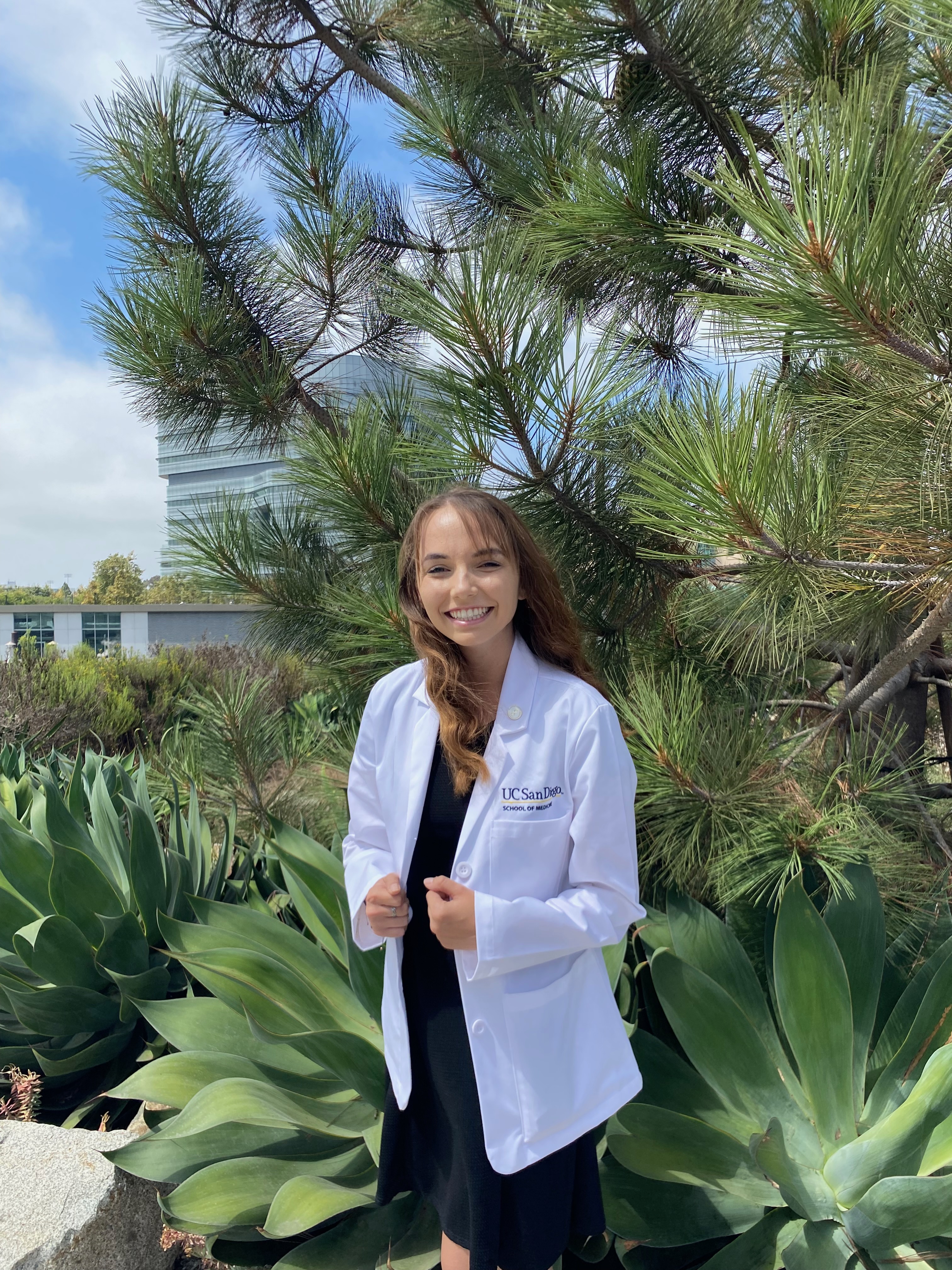
Faculty Mentor: Jyoti Mishra, MD
Project Title: Investigating Empathy and Compassion for Planetary Well-being in Medical Students
Project Description: This project aims to investigate medical students’ attitudes toward planetary well-being and the role of plant-based diets in addressing global health challenges.
Scholar: Vanessa Ho

Faculty Mentor: Jesse Qualliotine, MD
Project Title: Examining the utility of “compassionate” language in illustrative surgical guides for head and neck cancer patients undergoing free tissue transfer
Project Description: Our project will involve designing and distributing two versions of an illustrative surgical guide (one using neutral language and one using compassionate language in the illustration captions) to head and neck cancer patients undergoing free tissue transfer. Patient surveys will then be administered pre-operatively to assess these patients’ anxiety levels, feelings of preparedness toward the surgery, and satisfaction with their care, with results compared across patients who received no guide, a neutral-language guide, or a compassionate-language guide.
Scholars: Novia Dattatri and Kamaljot Gill

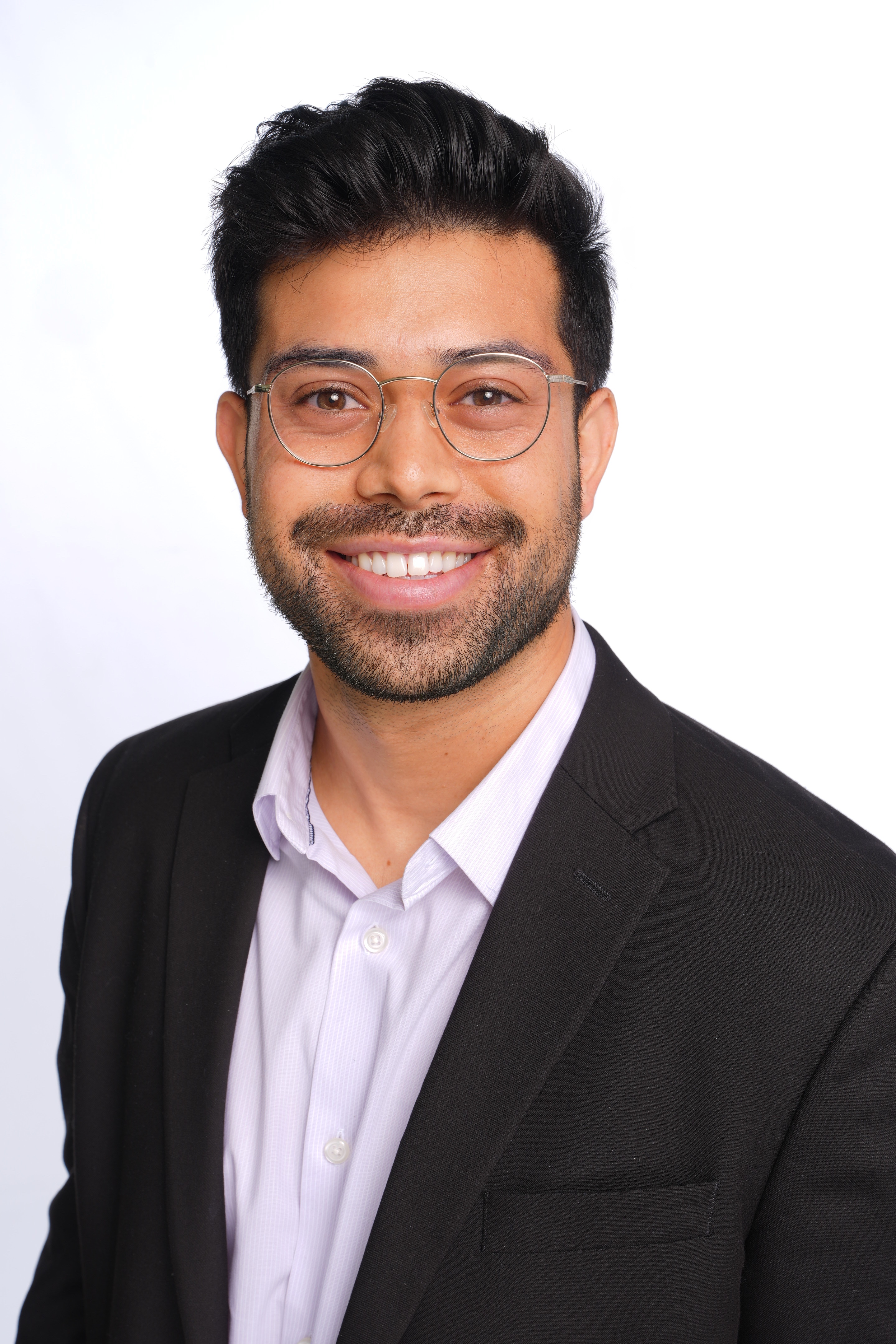
Faculty Mentor: Audra Meadows, MD
Project Title: Understanding the Implications of Race-Based Clinical Medicine
Project Description: This study will develop and evaluate an elective course on race-based medicine designed to: 1) enhance medical students’ empathy, 2) strengthen their ability to recognize and address the influence of race-based medicine on clinical outcomes and 3) equip students with the practical skills necessary to provide equitable care.
Scholar: Jacqueline Loh
Faculty Mentor: Peter Than, MD
Project Title: Healing Through Care: The Impact of Empathy and Compassionate Communication during the Organ Donation Process
Project Description: This project investigates how compassionate communication and empathy from end-of-life care teams influence consent to organ donation and the grief process for donor families. Through interviews and surveys with families of organ donors, this project will investigate: how empathy and compassion can impact (1) the rate of consent to organ donation and (2) grief and well-being of donor families.
Scholar: Kulveer Setya
Faculty Mentor: Joseph Diaz, MD
Project Title: Examining the Impact of Ambient AI Scribes on Efficiency, Physician Wellbeing, and Patient Experience
Project Description: The objective of this study is to rigorously evaluate the impact of ambient AI scribe technology on physician workload, wellbeing, and patient experience here at UCSD Health. The project seeks to determine whether AI scribes can reduce documentation burden and improve the patient-physician interaction across a variety of surgical and medical subspecialties and clinical workflows. The findings will inform best practices for the safe and effective integration of AI-enabled tools into healthcare systems.
Scholar: Felicia Song
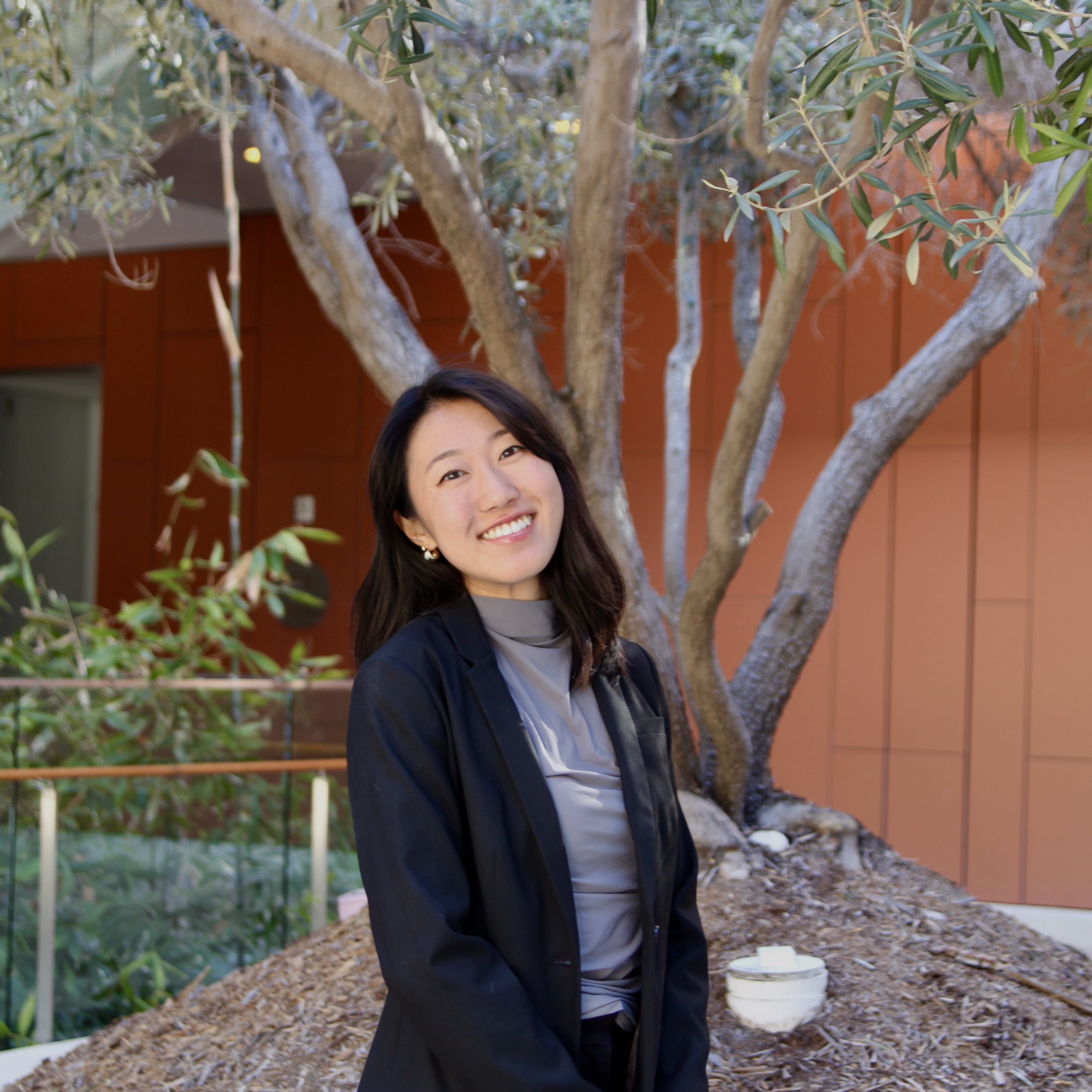
Faculty Mentor: Joseph Ciacci, MD
Project Title: Perceived Safety, Provider Compassion and Barriers to Follow-Up in Trauma Care for Border Wall Fall Patients
Project Description: This study explores how provider compassion, hospital transparency, and systemic barriers shape the experiences of border wall fall patients in trauma care. By examining patient trust, perceptions of safety, and follow-up adherence, this research will generate insights to improve equitable neurosurgical and trauma care and long-term patient outcomes.
Scholar: Samira Torna
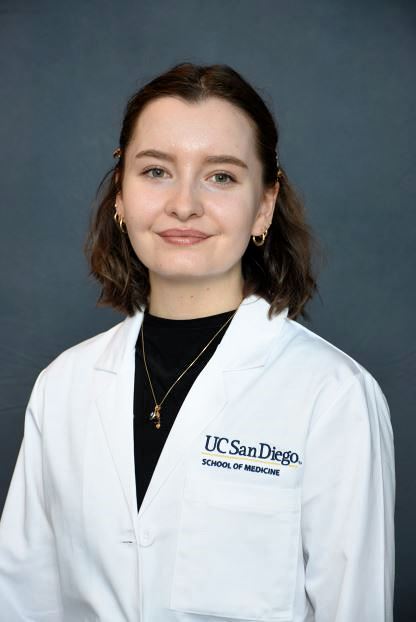
Faculty Mentor: Sarah Averbach, MD
Project Title: A qualitative study exploring patient experiences of traveling to seek abortion care: stigma, support, and self-compassion
Project Description: This qualitative study will explore the experiences and perspectives of individuals traveling to or from North Carolina to receive an abortion, focusing on the intersection of self-compassion, stigma, and health equity. We aim to understand how current abortion restrictions create systemic and personal challenges when seeking abortion care, and how these challenges impact and are mitigated by self-compassion and mental health.
2024-25 Scholars
Amalia Axinn

Faculty Mentor: Edward Chao, DO
Project Title: Developing and Testing a Self-Compassion Tool Kit to Improve the Care of Individuals with Type 2 Diabetes
Project Description: There is a high prevalence of anxiety and depression in patients with Type 2 Diabetes (T2D). While past studies demonstrate the potential therapeutic effect of mindfulness-based interventions in patients with T2D, little is understood about the mode of delivery or quantity of the intervention necessary to experience benefits. This project aims to develop and implement a self-compassion tool kit based on the principles of mindfulness and meditation to better understand how self-compassion works to affect psychological health and wellbeing in patients with T2D. I will study the impact of a self-compassion tool kit - including mindfulness meditation, exercise, journaling and sleep parameters - on T2D. Enhancing emotional well-being could complement current T2D treatments to facilitate improved quality of life.
Abhishek Bhatt

Faculty Mentor: Martin Pham, MD
Project Title: Improving Recruitment Into Neurosurgery: A Survey of AANS Medical Student Chapters
Project Description: Physician diversity is critical for culturally competent care which significantly improves both patient outcomes and comfort, especially when caring for critically ill patients. Unfortunately, neurosurgery continues to be one of least diverse specialties in the US while caring for an extremely vulnerable patient demographic. Our project aims to provide residency programs a better understanding on where to focus their efforts in order to increase the quality of their recruitment strategies. This study will help create a guideline to understanding barriers of access and provide all programs, not just those for neurosurgery, a blueprint to creating equitable access to their field.
Sabrina Chriqui
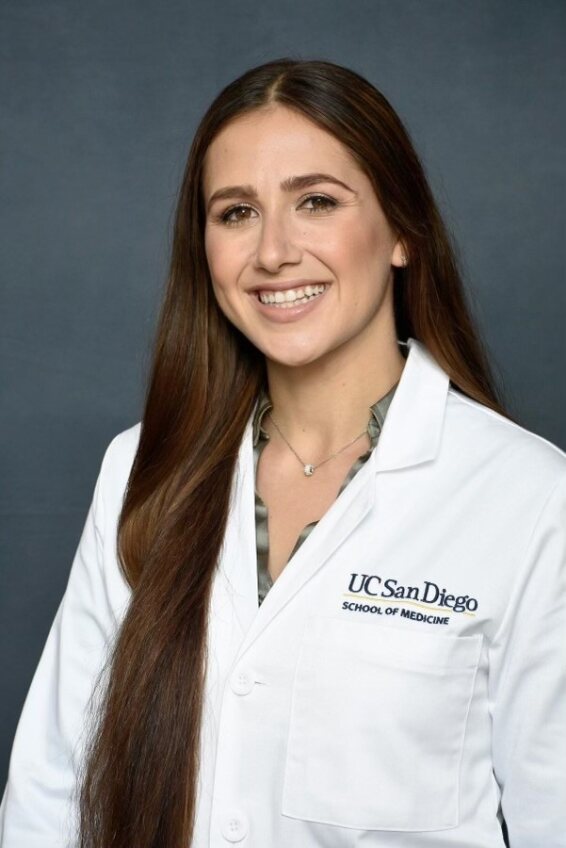
Faculty Mentor: Preetham Suresh, MD
Project Title: The Impact Of Physicians Using Virtual Reality Headsets During Patient Encounters On Patients' Perceptions of Compassion and Empathy From Their Healthcare Providers
Project Description: Evaluate the impact of physicians wearing VR headsets on patients’ perceived connectedness with their physician. We hypothesize that VR headsets may interfere with patients’ ability to connect with their physicians, leading to decreased perception of empathy/compassion from the provider. We hope to investigate both short and longer patient visits (e.g., informed consent for anesthesia versus a primary care visit). We hypothesize that regardless of the duration of the encounter, patients will perceive a decreased sense of compassion, empathy, and general connectedness with their physician. This effect may be more pronounced in longer encounters. Evaluate the impact of the Apple Vision Pro’s “persona” feature in comparison to other VR headsets on patient connectedness. We hypothesize that the ability to see the provider’s eyes through the headset will increase their sense of connectedness compared to a headset without this feature, such as the Meta Quest 3.
Anahi Ibarra

Faculty Mentor: Joel Castellanos, MD
Project Title: Treating Pain and Empathy with One Dose: A Pilot Study Assessing Changes in Empathy and Compassion After Treatment with Psylocibin for Phantom Limb Pain
Project Description: Compassion is an important predictor of positive mental health. Despite growing research in the field, current interventions have limited effects on sustained wellbeing. Treatment with one dose of psilocybin has been shown to improve depression and anxiety but research remains limited. This current study, will conduct secondary analysis to explore how psilocybin treatment may lead to changes in compassion among individuals with phantom limb pain. We hypothesize that treatment with psilocybin will improve changes in reported empathy, compassion, mindfulness, and social connectedness compared to the control group receiving Niacin.
Rithik Kumar
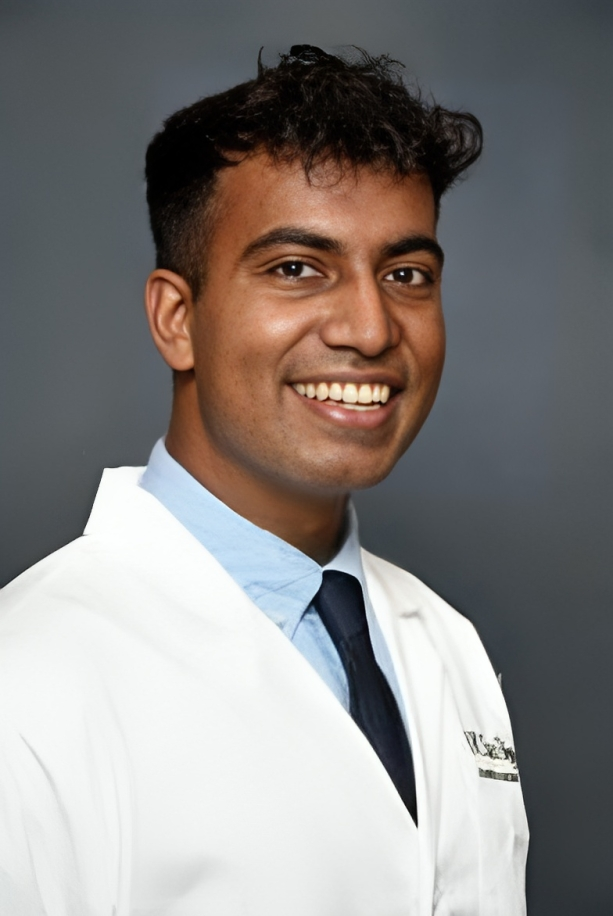
Faculty Mentor: Ramya Rajagopalan, PhD
Project Title: Exploring the Future of AI in Oncology: Investigating Resident/Fellow Perspectives on Augmented Intelligence in Continuity and Compassionate Care
Project Description: As healthcare systems struggle with resourcing and make decisions that may prioritize efficiency over empathy and compassion, artificial intelligence (AI) may provide an opportunity to sustainably expedite equitable patient care. Integrating AI via a human-computer symbiosis model, wherein humans provide strategic input while computers (e.g., AI models) provide depth of analysis, seems promising. Initial qualitative studies suggest that patients are receptive to this form of augmented intelligence if it is implemented in a way that preserves the integrity of the human-physician relationship. Despite its critical role in patient care, many people with cancer report poor psychosocial experiences, including reduced quality time with providers, a lack of information provision, and limited trust in health professionals. This project will aim to explore residents'/fellows' perception of and preparation for implementing AI in the continuity oncological care space. Additionally, the project will explore resident/fellow perspectives on the nuances of AI augmented care in regards to the patient-physician relationship and clinical integration of psychosocial care, especially for URM patients.
Sargis Manukyan
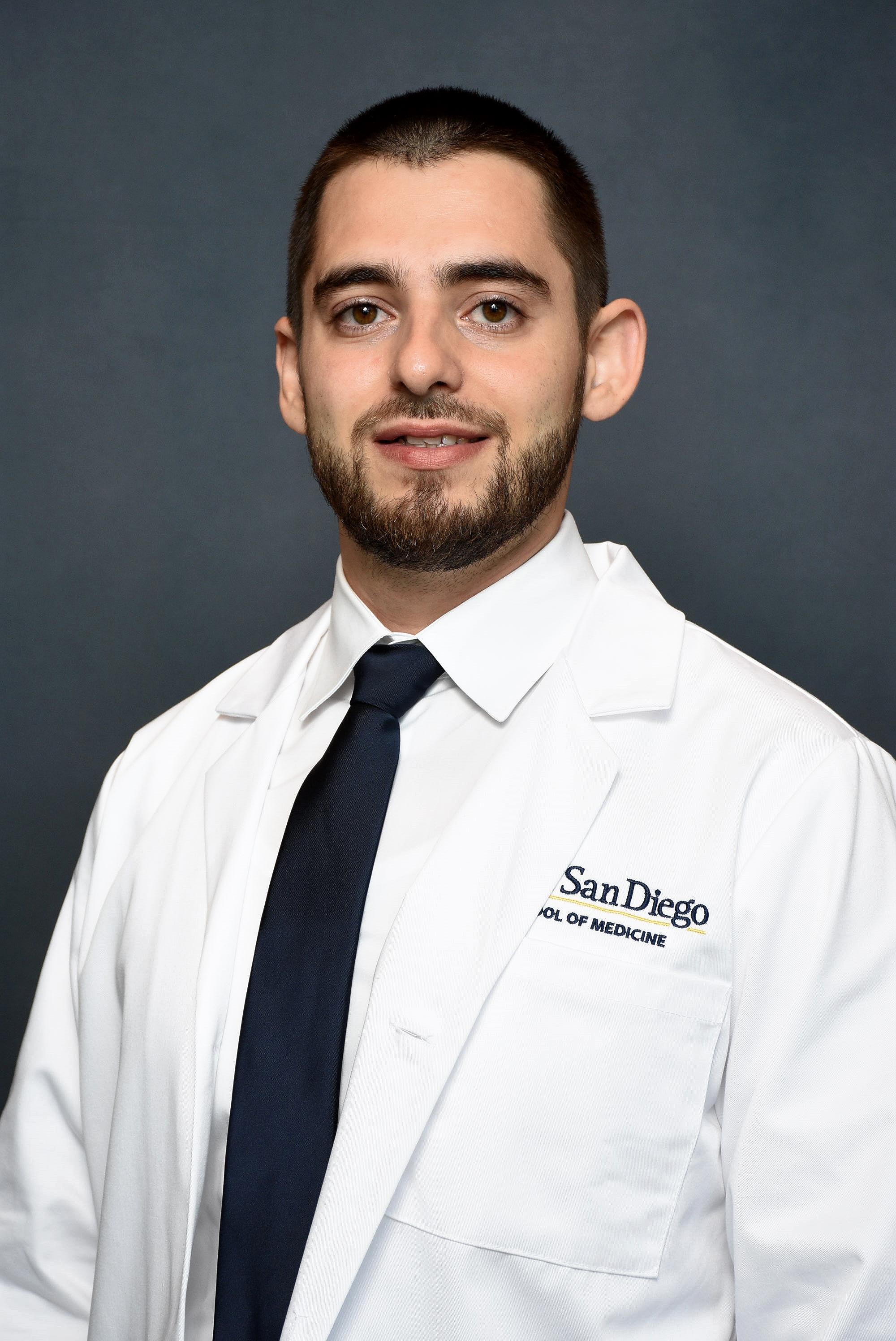
Faculty Mentor: Jennifer Graves, MD, PhD
Project Title: Predictors of Suffering in Multiple Sclerosis
Project Description: To date, the construct of suffering has not been evaluated in multiple sclerosis (MS), a chronic debilitating disease, despite validated standardized suffering scales existing for other such conditions, such as cancer. Our project will focus on the second phase evaluation of the newly developed Wilder MS-Related Suffering Scale, currently being validated in a phase one clinical trial, by evaluating how it correlates with patient demographics, clinical measures and self-compassion.
Emily Nakumura
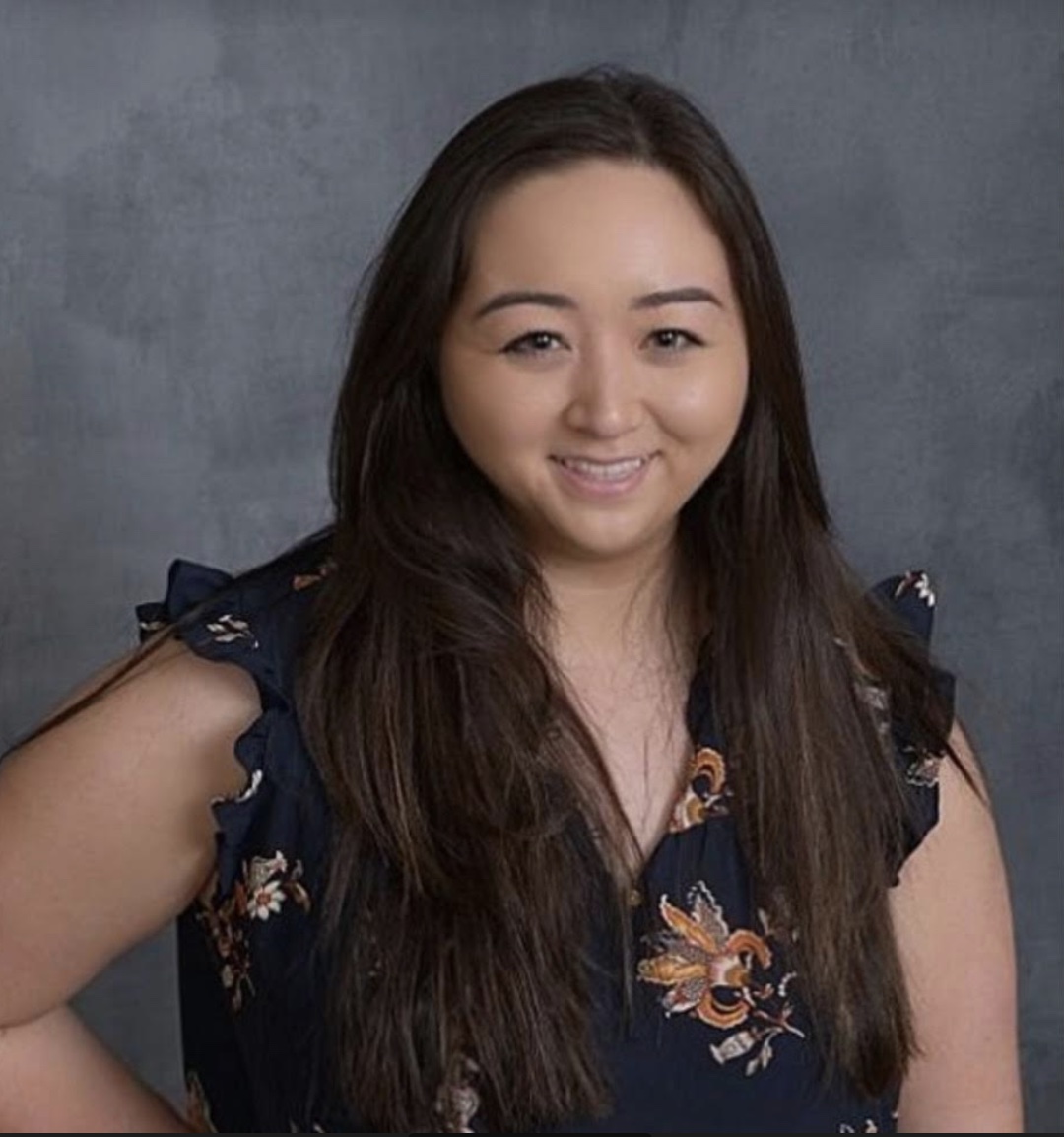
Faculty Mentor: Megha Shankar, MD
Project Title: Promoting Empathy and Compassion in Family Planning: Trauma-Informed Communication Practices
Project Description: This project aims to analyze data compiled from focus groups of family planning physicians and evaluate and identify, using the TRIADs framework (Trauma and Resilience-informed Inquiry for Adversity, Distress, and Strengths), the best practices in compassionate trauma inquiry and response. Through this research, we will review and analyze the ways that family planning physicians inquire and respond to questions regarding issues of trauma - including sexual assault and inter-partner violence. The analyses can be used by any clinicians providing family planning services to learn about best practices regarding trauma inquiry and response.
Shanaya Sidhu
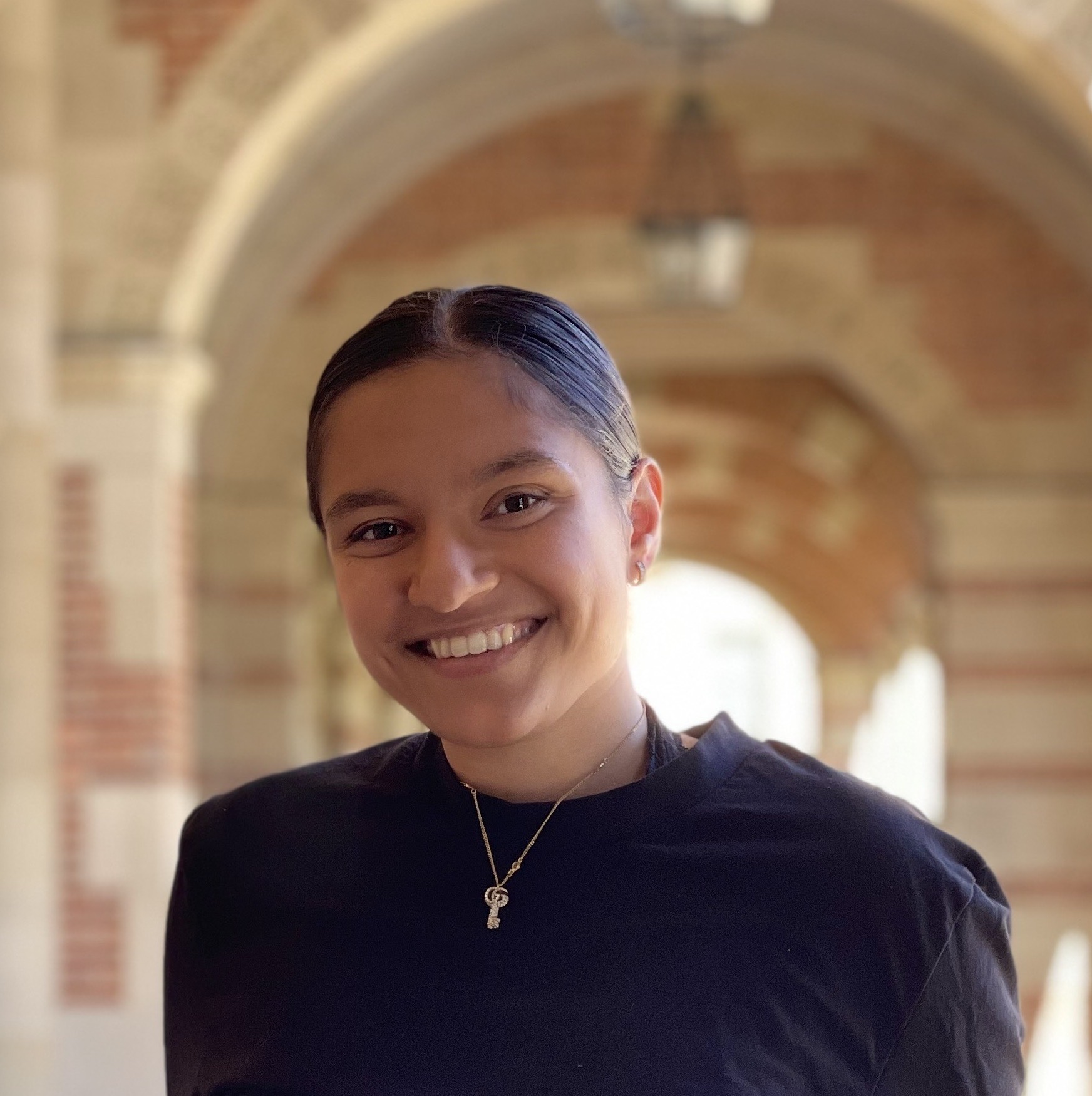
Faculty Mentor: Jennifer Anger, MD, MPH
Project Title: Understanding Adult Genderqueer and Nonbinary (GQNB) Experiences within Healthcare from Patient and Provider Perspectives
Project Description: While research on binary transgender individuals is rapidly expanding, GQNB (genderqueer and nonbinary) individuals are not often centered within healthcare and research. In a world that emphasizes binaries, GQNB individuals are often left misunderstood and discriminated against within healthcare spaces. We seek to explore the unique healthcare experiences of GQNB individuals through key informant interviews to identify key themes pertaining to access to care, quality of care, and proposed improvements to care. There is a current gap in the research as there are no studies exploring GQNB healthcare experiences from both physician and patient perspectives. We seek to address this gap with the overall goal of increasing empathy and awareness for GQNB needs within clinical care.
Kiley Steinbeck-McCombs
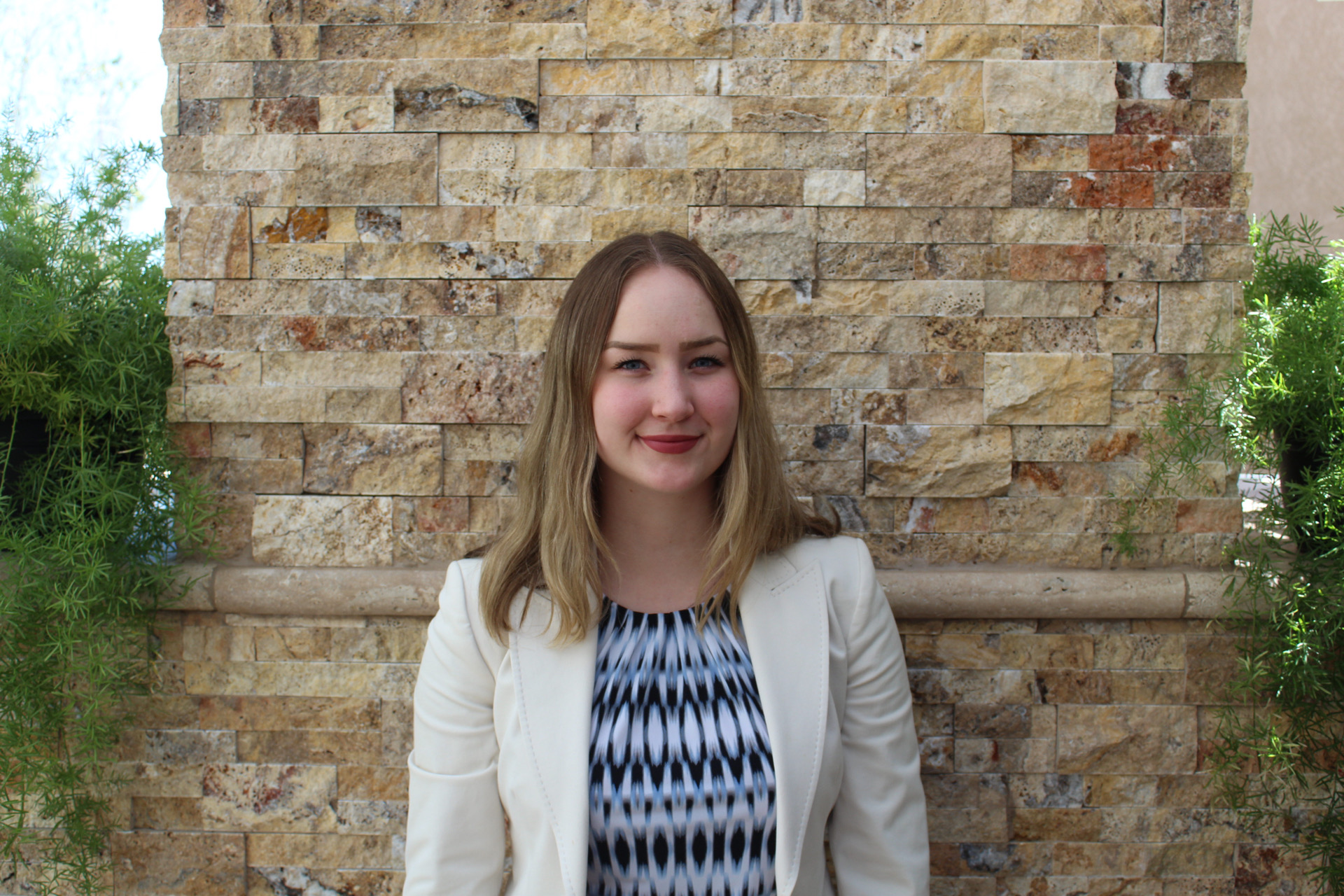
Faculty Mentor: Kie Fui, MD
Project Title: Integrating Disability Curriculum into Undergraduate Medical Education to Improve Physical Equity and Empathetic Practice of Medicine
Project Description: While 27% of US adults have a disability, there is an obvious disconnect within the medical community as individuals with disabilities are less likely to seek out care. Medical students exposed to any form of disability curriculum showed a positive change towards peers and patients with disabilities and higher patient satisfaction. To address this disparity, we propose integrating disability curriculum into UC San Diego's undergraduate medical education. Four sessions will be added to the Practice of Medicine course with aims to improve awareness and understanding, communication, community involvement, and accommodations in a medical environment for individuals with a physical disability.
Myat Wai
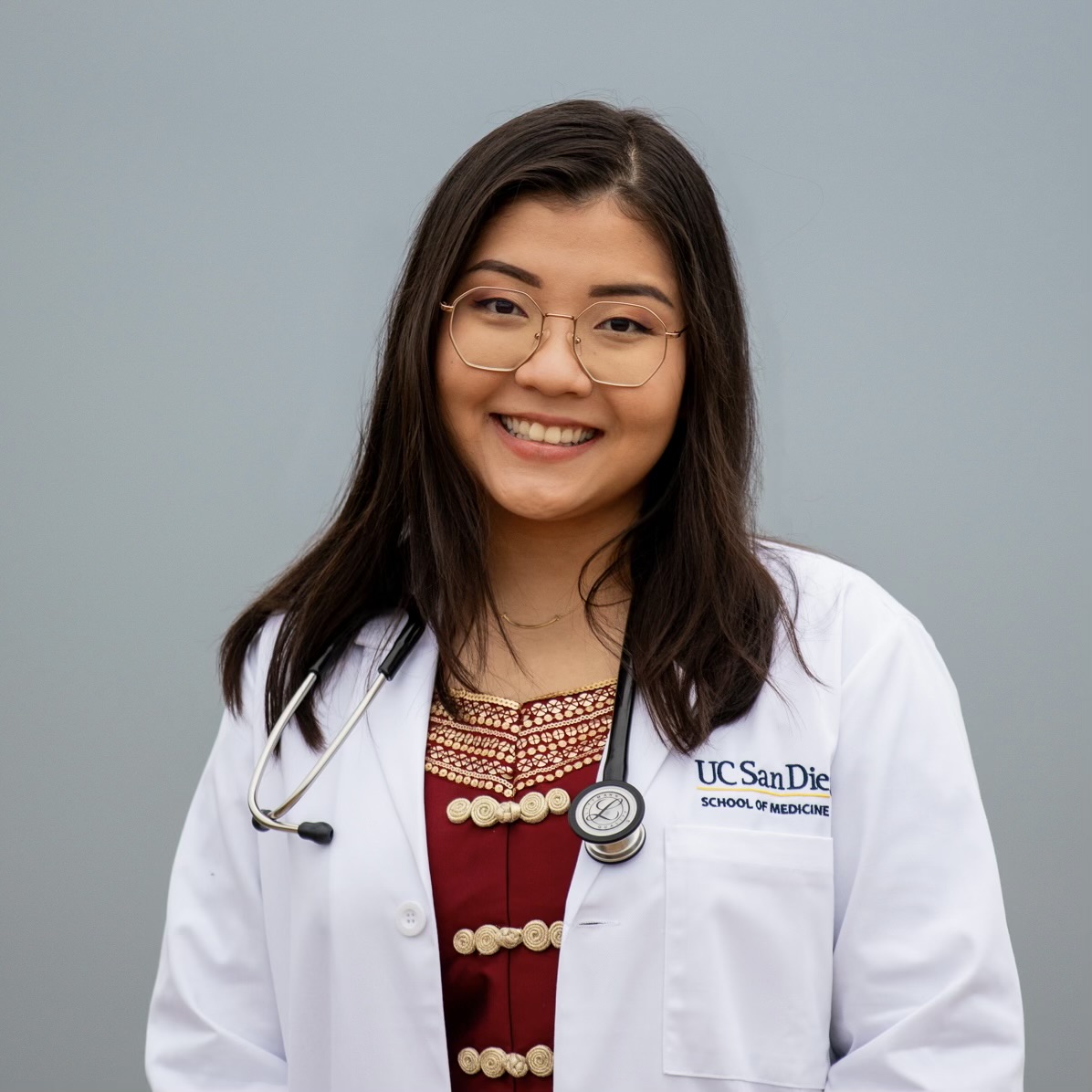
Faculty Mentor: Benjamin Han, MD, MPH
Project Title: Fostering Compassion and Empathy Toward People Who Use Drugs Through a Harm Reduction Outreach Elective
Project Description: Harm reduction is a range of strategies aimed at reducing consequences associated with drug use and built on a movement to respect people who use drugs. This project collaborates with the Harm Reduction International Health Collective (IHC) Education team to develop, integrate, and evaluate a multi-modal harm reduction elective at UCSD School of Medicine. Students will learn about harm reduction practices and get involved in outreach efforts by providing safe injection and smoking supplies to vulnerable communities in Downtown San Diego. We will evaluate the impact of exposure to harm reduction on students’ empathy and compassion and their perspective about people with drug use disorders through pre and post-elective surveys and focus group interviews.
William Zhang
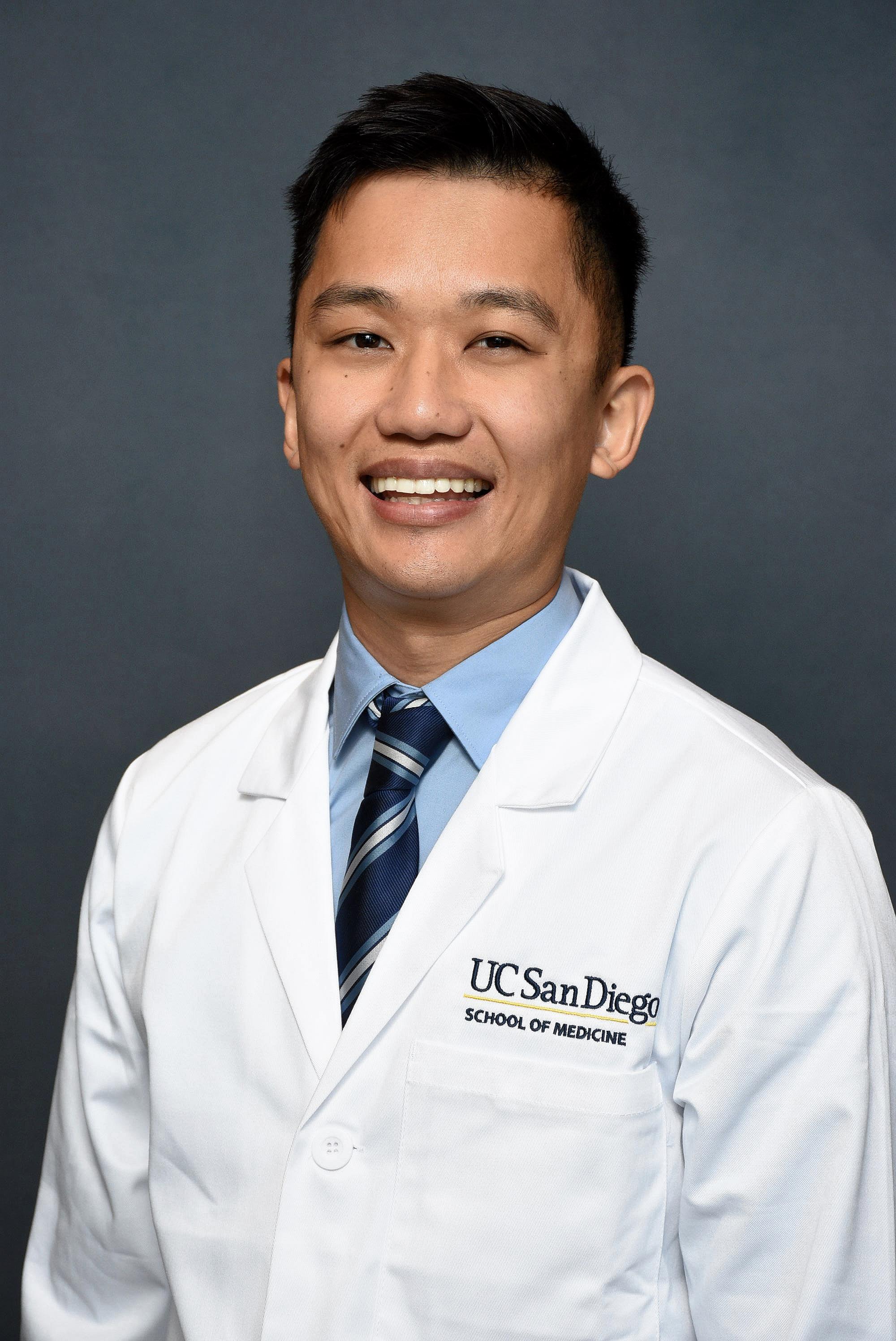
Faculty Mentor: Etienne Macedo, MD, PhD, FASN
Project Title: Exploring the Role of Empathy and Compassion in Promoting Nephrology Follow-Up Within Stage 3 AKI Survivors, as well as Barriers to Nephrology Follow-Up for Stage 3 AKI Survivors
Project Description: Among patients affected by an acute kidney injury (AKI) during hospitalization, follow-up with a nephrologist within 90 days of discharge is associated with significantly reduced mortality. However, a large portion of these patients do not receive follow-up within this window, if at all. In this project, we seek to elucidate: (1) The role of empathy and compassion of hospital physicians, nurses and staff in promoting early nephrology follow-up among Stage 3 AKI survivors; (2) Obstacles hindering nephrology follow-up for Stage 3 AKI survivors, including factors such as distance to providers, language, and income; and (3) Adverse health outcomes experienced by Stage 3 AKI survivors as a result of loss to follow-up.
2023-24 Scholars
Jasmine Arora
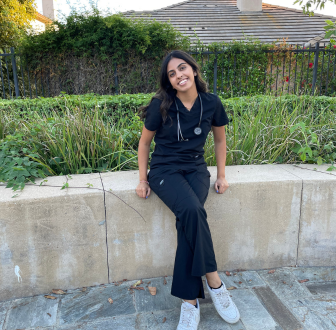
Faculty Mentor: Amy Lansing, PhD
Project Title: The Role of Self-Compassion in Predicting Healthy Coping and Trauma-related Maladaptive Coping, Self-Appraisals and Cognitive Distortions
Project Description: Early life adversity exposure has a specifically crucial impact because during adolescence, neuronal processing becomes refined based on experience. This is an extremely pressing matter because children and adolescents with altered neurodevelopment become more vulnerable to stressful experiences and often have worse medical and mental health outcomes. This public health matter is compounded by the increased amounts of adversity that communities of color face - which further increases lifespan health disparities. Despite research generally supporting the idea of self-compassion being a beneficial practice, the role of self-compassion in mitigating the impact of cumulative adversity among youth has not been widely reported. Our project seeks to characterize facets of self-compassion and investigate the role it plays in predicting coping, self-appraisals, and cognitive distortions among adolescent girls in the juvenile justice system.
Alexander Auchus
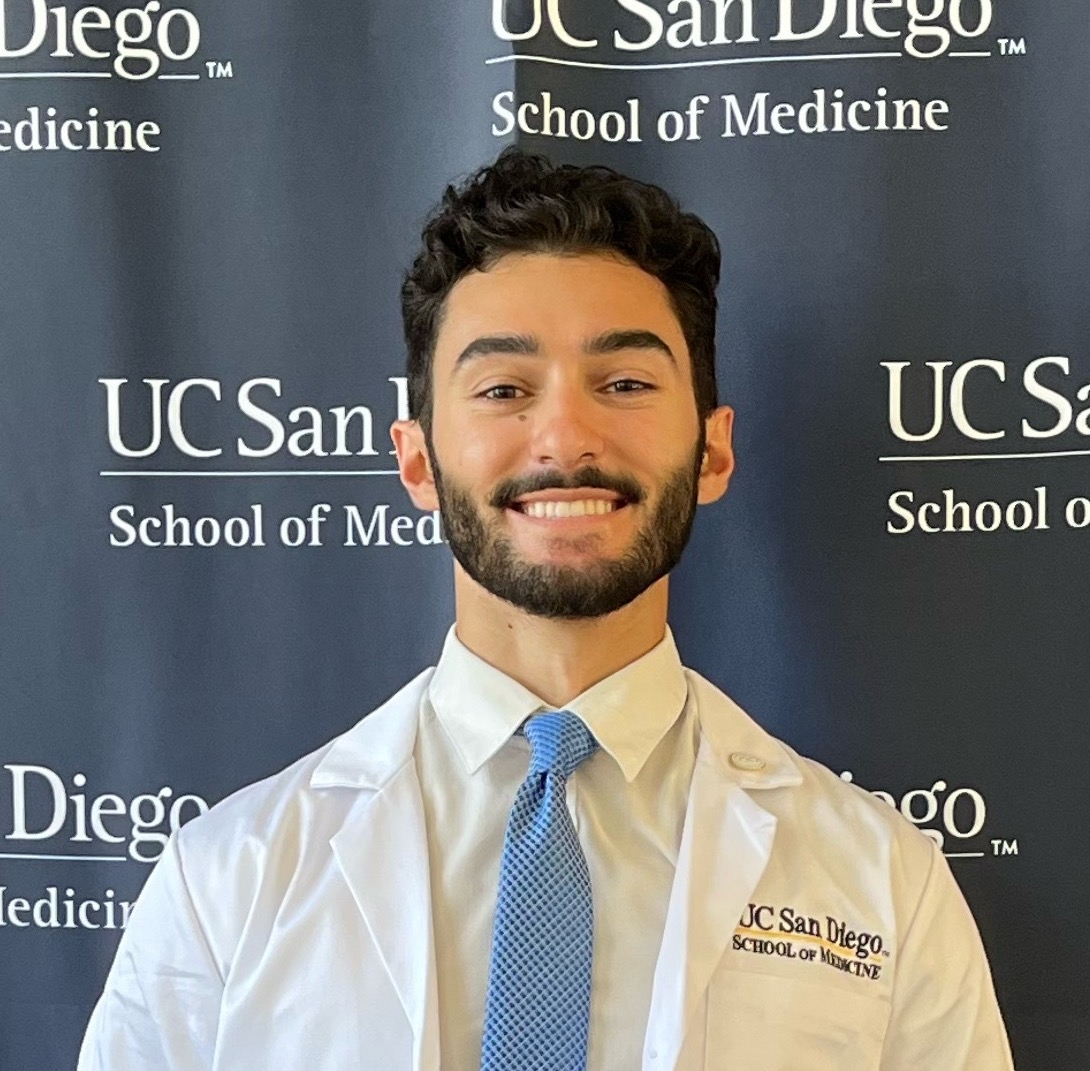
Faculty Mentor: David Grelotti, MD
Project Title: Internalized Homophobia and Anabolic-Androgenic Steroid Use Among Young Latino Sexual Minority Men: Toward Understanding the Role of Self-Compassion in Psychosocial Syndemics
Project Description: Rates of anabolic-androgenic steroid (AAS) misuse are disproportionately high among Latino sexual minority men (SMM), and AAS misuse is associated with increased HIV risk among SMM. However, relationships between AAS misuse, psychosocial HIV syndemics, and internalized homophobia have not been explored. As a step to establish the relevance of self-compassion to AAS misuse and syndemics theory, we will examine relationships between internalized homophobia, psychosocial syndemics, and AAS misuse among young Latino SMM. We will also identify social determinants of health and psychosocial syndemics with strongest associations with internalized homophobia.
Avelina Brener
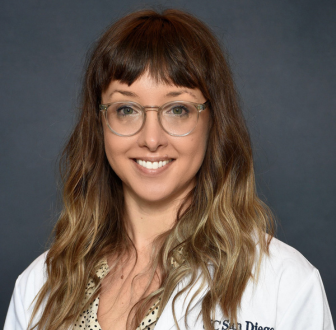
Faculty Mentor: Federica Klaus, MD, PhD
Project Title: Examining the relationship between sleep, empathy and compassion in populations at risk for sleep disturbances
Project Description: Adequate sleep is an essential component of health and wellbeing and its effect on empathy and compassion has been vastly understudied. This project will focus on reviewing existing literature linking sleep quality to empathy and compassion as well as investigate the relationship between sleep quality, empathy, and compassion in older adults. By examining this relationship explicitly in a population at high risk for sleep disturbances, I hope to fill in knowledge gaps around how these important behaviors interact and inspire future studies that will contribute to our overall understanding of the importance of sleep, empathy, and compassion.
Lauren Ibarra
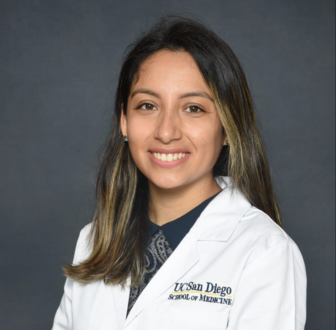
Faculty Mentor: Anuja Jindal, MD, MPH
Project Title: Using Co-Design to Develop an Education Module on Inclusive Care for Patients with Autism Spectrum Disorder
Project Description: Current evidence suggests patients with autism spectrum disorder (ASD) experience increased medical and social inequities, alongside heightened morbidity and early mortality as compared to patients without ASD. Contributing barriers can be segmented into two general characteristics: non-inclusive infrastructure of the medical system and lack of education for medical providers on how to communicate/adhere to the needs of ASD patients. This study aims to use a co-design process to create a medical module implemented before the third-year pediatric rotation to educate medical students on how to identify, communicate, and understand the nuanced needs of patients with Autism Spectrum Disorder (ASD) and their caregivers. Translating the expertise of the patients and pediatric specialists, the project will work to ensure that the medical field is producing providers that are prepared to provide equitable care in call medical specialties to ASD patients at every stage of life.
Mariam Mansour
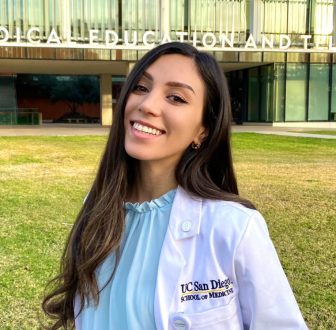
Faculty Mentor: Christopher Coyne, MD
Project Title: The Role of Compassion for Oncology Patients in the Emergency Department
Project Description: Oncology patients are vulnerable and at particular risk of psychological distress, including pain catastrophizing, which is associated with worse pain outcomes, greater opioid use, and more frequent emergency department (ED) visits. While they commonly present to the ED for pain, the level of compassionate care they receive and its impact on their psychological and clinical outcomes is not well understood. Given that emergency medicine physicians are at increased risk of burnout, which may affect the level of compassion provided, this project aims to investigate the role of compassionate care on the well-being of both oncology patients and emergency medicine physicians.
Letitia Mueller

Faculty Mentor: Ramya M. Rajagopalan, PhD
Project Title: Understanding Factors Related to Empathy, Well-Being, and Burnout among Underrepresented Medical Students
Project Description: Burnout as a phenomenon is increasingly prevalent among physicians and physician trainees, linked to compassion fatigue, emotional exhaustion, and decreased effectiveness in daily work. Among medical professionals, burnout has particularly severe consequences, not only for practitioners themselves, but because it has an outsized impact on patient outcomes and satisfaction. However, empathy can be a protective factor. This study will use focus groups and survey methods to understand drivers of empathy and burnout midway through undergraduate medical education among underrepresented students, to inform interventions that could benefit health trainees.
Sadie Munter
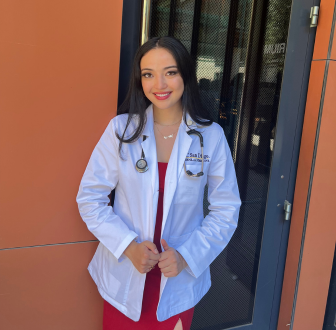
Faculty Mentor: Jarrett Santorelli, MD
Project Title: “I’m smiling behind my mask”: A New Age of Communication Between Trauma Surgery Providers and Patients
Project Description: Since the onset of the COVID-19 pandemic, face masks have become an essential tool for protecting both providers and patients from the spread of COVID-19 and other airborne infections. Previous studies have long demonstrated that facial expressions are critical for effective interpersonal communication, and in particular, are an important part of the patient-provider relationship. We are interested in exploring how masking has impacted communication and empathy, between trauma surgery providers and patients in a Level-1 trauma center. Furthermore, we hope to use our findings to identify techniques that improve provider-patient communication while maintaining patient and provider safety.
Marcos Real

Faculty Mentor: Tala Al-Rousan, MD, MPH
Project Title: Introducing Empathy and Compassion Towards Refugees and Immigrants Through a Medical School Elective
Project Description: To address the gap in medical education regarding refugee and immigrant health, we aim to create a preclinical elective at the UCSD School of Medicine (SOM) focused on improving students’ understanding of the lived experience, healthcare needs, and clinical management of refugees and immigrants. Students will be taught and assessed through a mix of class workshops and site visits to local health agencies to learn core competencies necessary to interact with refugees and immigrants rooted in empathy and compassion.
Emma Rommelfanger
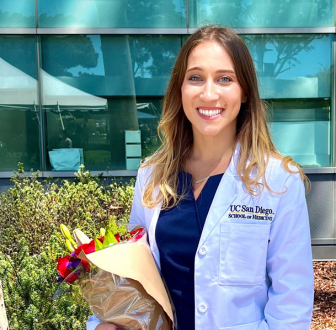
Faculty Mentor: Vanessa Scott, MD, MS
Project Title: The Impact of Compassionate Communication in Primary Care Settings on Breastfeeding Outcomes in Mothers of Low SES in San Diego County
Project Description: This mixed-methods research study will assess how compassionate communication used by healthcare providers impacts breastfeeding outlooks of first-time breastfeeding mothers with low SES and breastfeeding outcomes (infant age of 4 months). Survey and interview questions will evaluate the level of breastfeeding support and education received by mothers, and whether compassionate communication approaches were used by healthcare professionals in primary care settings.
Natalie Sarafian
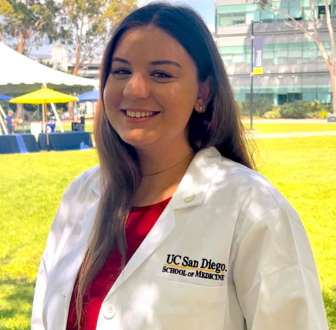
Faculty Mentors: Barbara Perry, MD and David Sommerfeld, PhD
Project Title: Sleep and Light Intervention Effects on Self-Compassion and Burnout Risk for Peripartum Depressed Women in Underserved Communities
Project Description: Postpartum depression affects about 17.22% of the world's population, and current treatments are expensive and largely inaccessible. Implementing self-compassion as a treatment option is understudied in peripartum depression, which can have detrimental effects on the mother and child if left untreated. This project will assess the levels of self-compassion in peripartum depressed women and the risk of burnout in providers in San Diego's underserved communities after implementing critically-timed sleep and light interventions (SALI), which improve mood post-treatment. We aim to elucidate important relationships between self-compassion and depression while also extending accessible treatments to underserved areas and reducing maternal and mental health disparities.
Michael Schulte

Faculty Mentor: David Grelotti, MD
Project Title: Examining the relationship of resilience and psychological wellbeing to depression chronicity in people with HIV
Project Description: Greater depression chronicity in people with HIV (PWH) is associated with worse health outcomes, including worse neurocognition, inflammation, and early mortality. This study will examine the relationship between psychological wellbeing, resilience, and depression chronicity in a cohort of 433 PWH from the HIV Neurobehavioral Research Center (HNRC).
Angela Wang

Faculty Mentor: Joel Castellanos, MD
Project Title: Assessing the Impact of Narrative Medicine on Empathy, Compassion, the Patient-Physician Bond, and Clinical Outcomes in Patients with Chronic Pain
Project Description: We aim to develop a novel, small-group narrative medicine intervention for patients with chronic pain, which will consist of four weekly art and literature discussion group meetings, each followed by a short writing activity, which will be made available to the patient's physician. We will measure its impact on empathy and compassion in the patient-physician bond, physician's perceptions of their patients, as well as on patient's self-empathy and resilience. To assess its potential clinical impact, we will compare patient's pain and function scores pre- and post-intervention to a control group's scores.
2022-23 Scholars
Therese (Tess) Ahlers
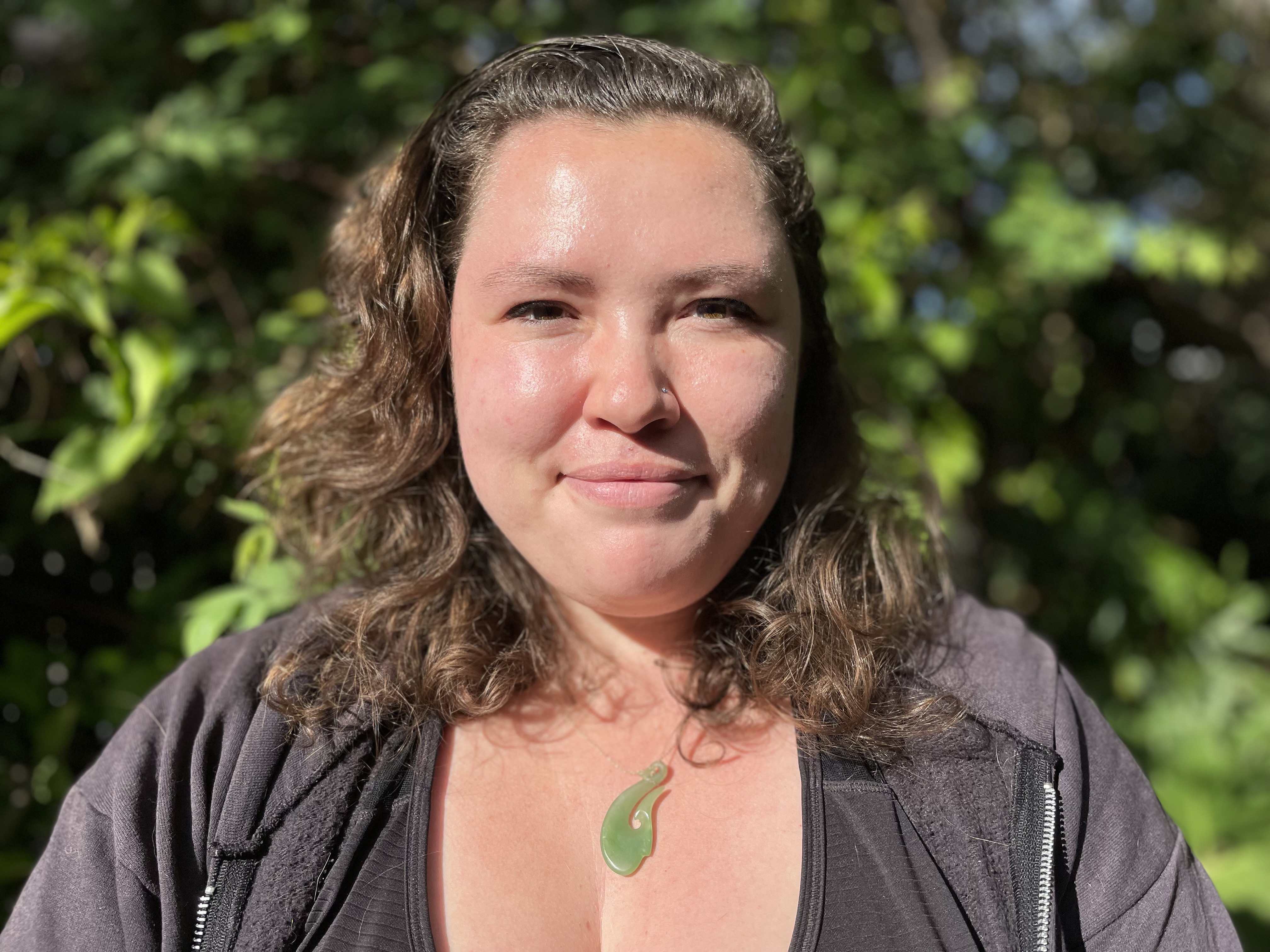
Faculty Mentor: Julie Celebi, MD
Project Title: Impact of Physician Mindful Self-Compassion Training on Patient Care
Project Description: Physicians and patients are suffering alike from the effects of healthcare provider burnout. In this study, we aim to determine if completing the six-week Self-Compassion Training for Healthcare Communities (a consolidated Self-Compassion course tailored for healthcare professionals) affects the experience of the patients of the physician. We hypothesize that the patients of physicians who completed the course will experience more compassionate care from their physicians than patients of physicians who did not complete the course.
Nissma Benchkeih

Faculty Mentor: Susan Lee, MD
Project Title: The Impact of Social Support on Self Compassion, Anxiety, and Depression in Long COVID-19 Patients
Project Description: Over 430 million people have been infected with SARS-CoV-2 worldwide. While most patients recover completely, many continue to suffer from an array of symptoms including anxiety and depression lasting more than 12 weeks. Little is known about Long-COVID risk factors and treatment, often exacerbating Long-COVID patient’s sense of helplessness and hopelessness. To address psychosocial symptoms seen in these patients, the UCSD Long-COVID Clinic established a patient support group led by a psychologist and spiritual leader. This project aims to assess the effect of social support and a multidisciplinary team approach on self-compassion, anxiety, and depression among patients suffering from Long-COVID.
Carmen Conroy

Faculty Mentor: Sheila Mody, MD
Project Title: Assessing Interest in peer Doula-facilitated Empathy and Self-compassion training among women with history of Early Pregnancy Loss (AIDES for EPL)
Project Description: Miscarriage, also known as early pregnancy loss (EPL), can result in psychological complications, including an increased risk of developing anxiety, depression, and post-traumatic stress disorder; however, limited data exist to elucidate which factors—such as high self-compassion or the existence of a strong interpersonal support network—might help attenuate poor mental health related to EPL. In this study, we will assess the potential for a peer support doula (trained in pain management, self-compassion, and emotional support techniques) as a possible EPL intervention that could result in improved emotional wellbeing and ability to cope post-EPL.
Tanya Jain and Nisha Uppuluri

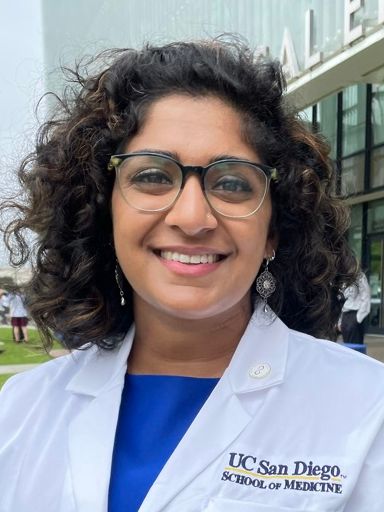
Faculty Mentor: Megha Shankar, MD
Project Title: Fostering Medical Student Empathy and Compassion: Development, Implementation, and Evaluation of a Trauma-Informed Care Elective
Project Description: In order to address current gaps in trauma-informed care (TIC) education for medical students, we plan to develop, implement, and evaluate a skills-focused TIC elective at the UCSD School of Medicine (SOM). Through this elective, we hope to improve students’ TIC knowledge, attitudes, and skills. Students will learn about the intersectional nature of trauma and health and practice techniques for compassionate and empathetic care for patients who have experienced trauma. The effectiveness of the elective will be assessed through a mixed-methods study, which will include community partnerships for curriculum development and surveys and focus groups for student evaluation.
Kanchi Mehta
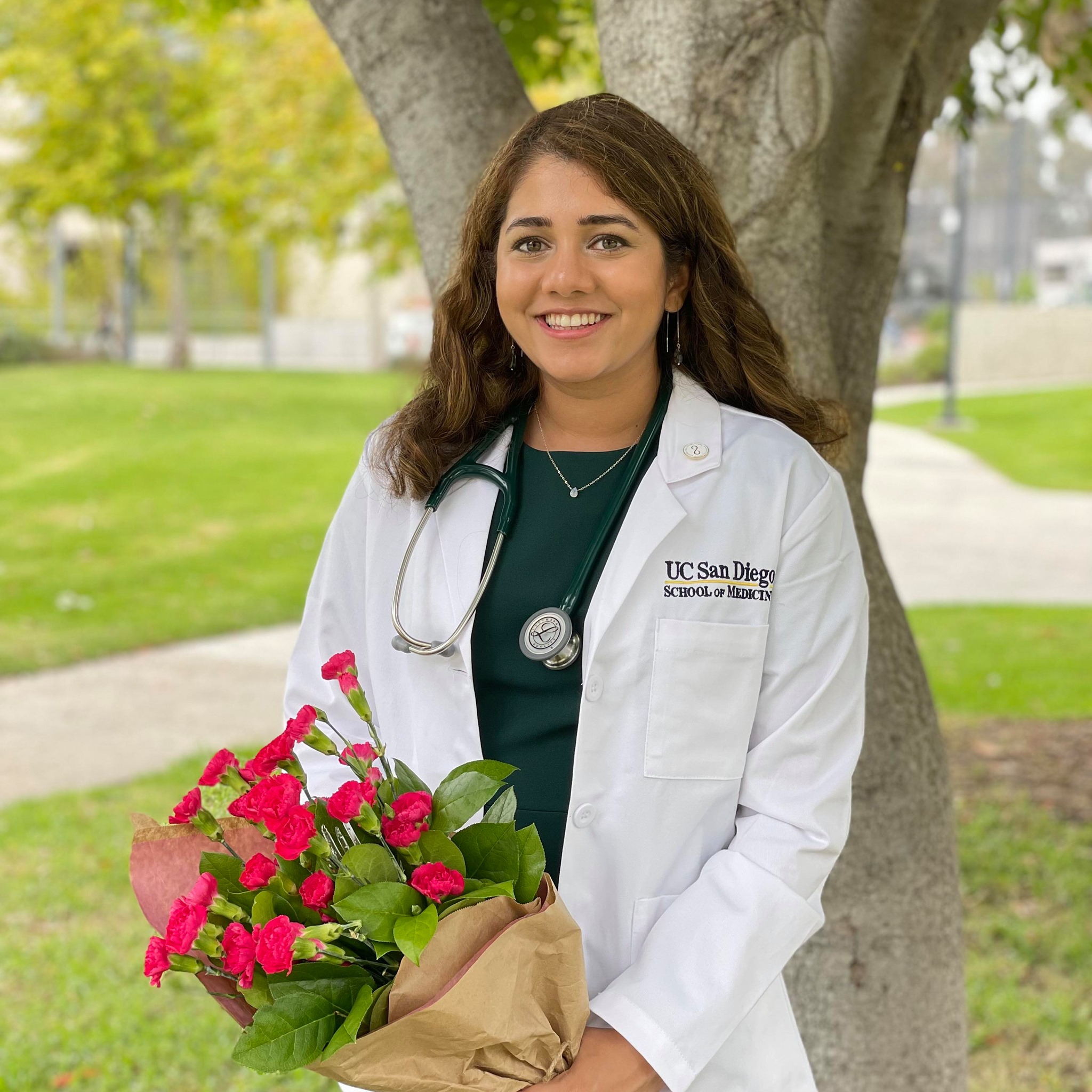
Faculty Mentor: Helen Wang, MD
Project Title: Exploring the role of social media on a sense of belongingness and professional identity formation during the first and second years of medical school.
Project Description: In medicine, professional identity formation (PIF) is how an individual undergoes professional socialization to adapt their pre-existing identity to "think, act, and feel like a physician." Elements in students’ support systems as they undergo this transformation (i.e. social media networks) influence their sense of belonging (SB) and empathy. Feelings of marginalization arise without SB, which interfere with PIF and contribute to physician burnout, loss of empathy, and risks to patient safety. We aim to collect qualitative and quantitative data to gain a nuanced understanding of first- and second-year medical students’ interactions with social media as it relates to SB and PIF.
Niveda (Nivi) Rao
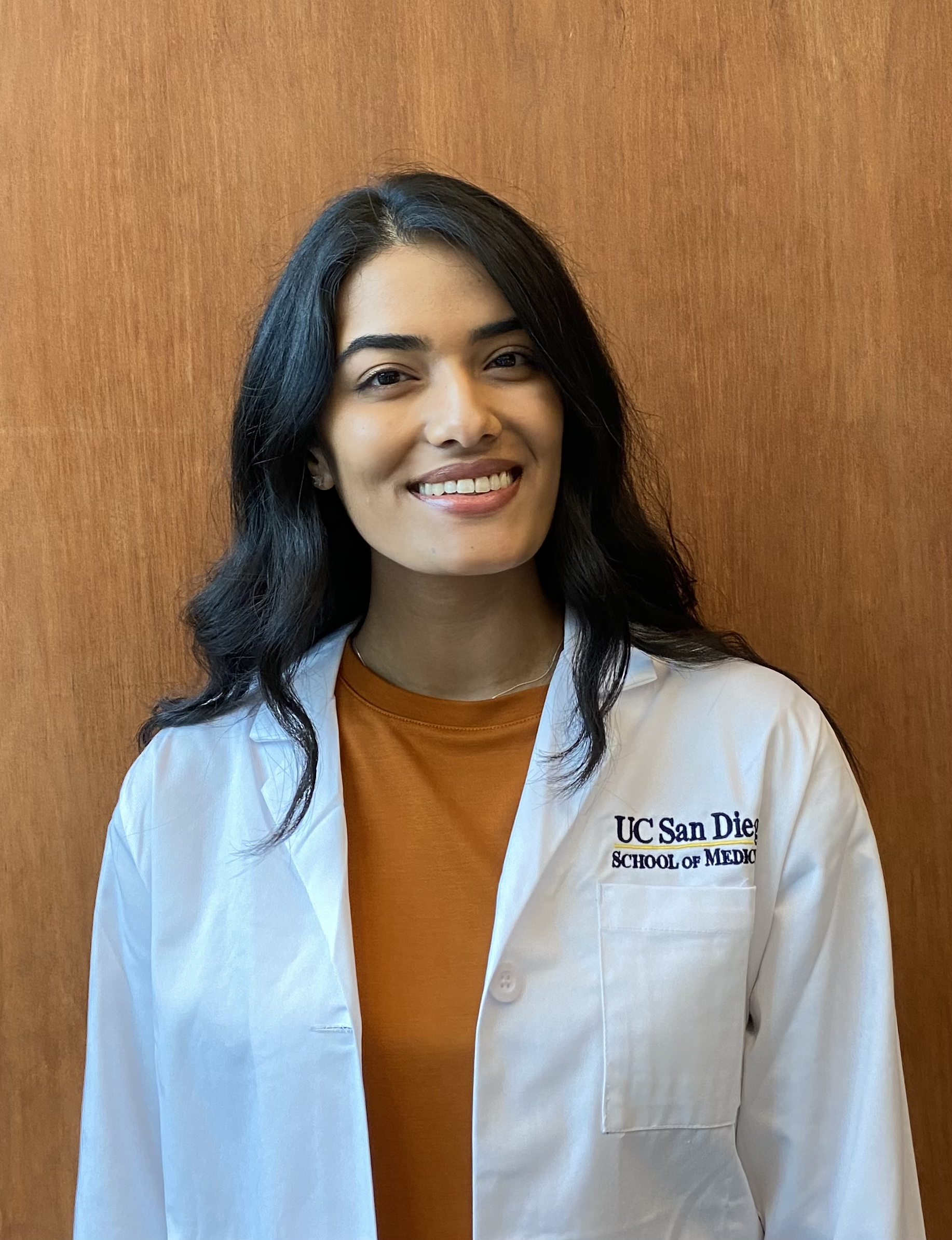
Faculty Mentor: Geoff Noel, PhD
Project Title: Measuring the effects of different types of body donor presentation on medical students’ empathy and inclusion during dissection
Project Description: The goal of this study is to understand how the presentation of a body donor can impact student empathy and compassion during cadaveric dissection. Personal traits and identifiable information about the donor can help students think about their first patient through a humanistic lens. We will be assessing first-year medical students’ physiological and behavioral responses to different body donor presentations during cadaveric dissection. If students can identify emotionally and physically to their body donors they are working with, we hypothesize that students can feel more empathy and compassion towards their donors in approaching dissection.
Ishan Saha
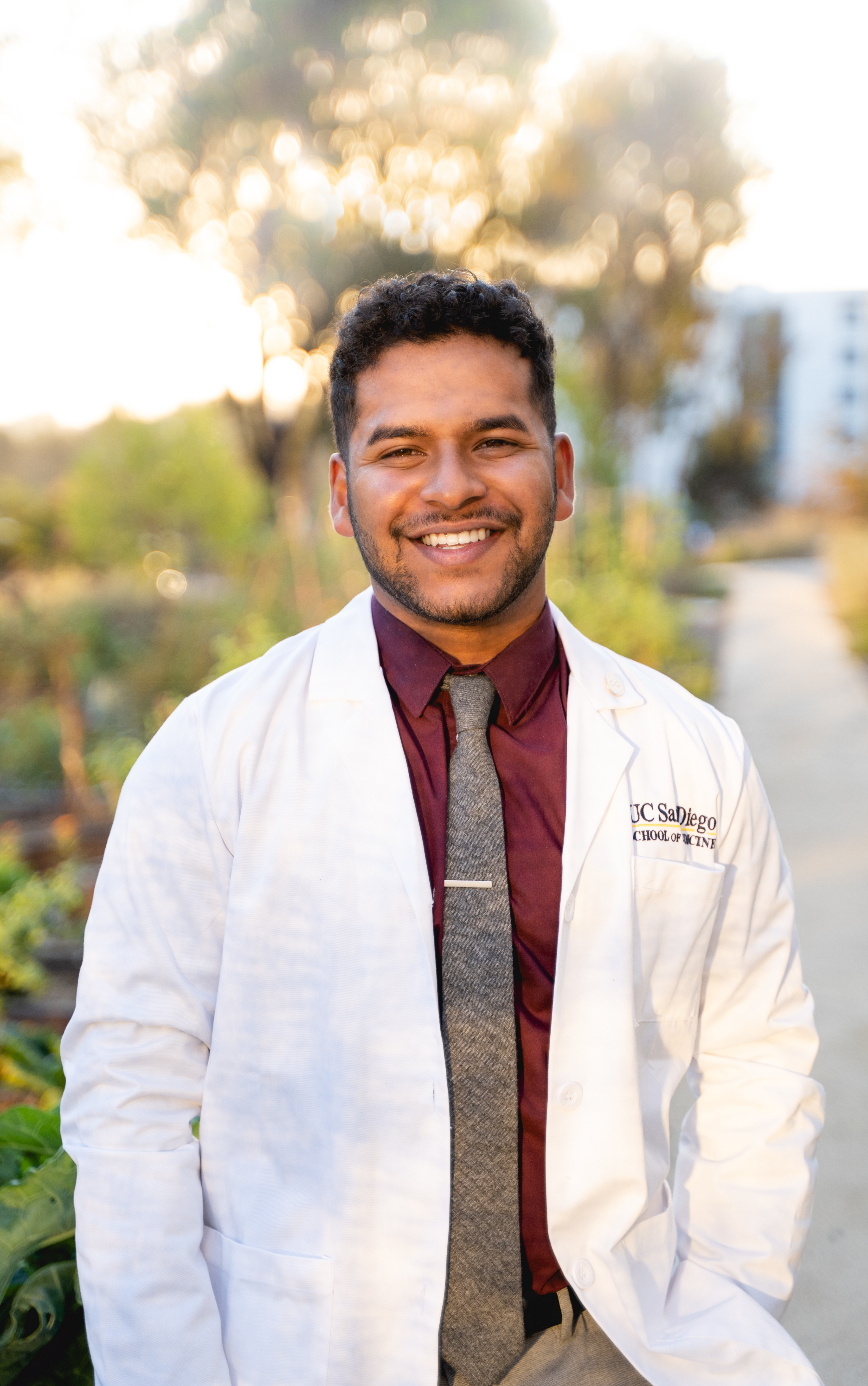
Faculty Mentor: Jennifer Anger, MD, MPH
Project Title: The influence of gender minority stress and cumulative psychosocial conditions on sexual risk behavior among transgender women and cisgender men who have sex with men at risk of HIV
Project Description: Our project aims to understand the disproportionately high vulnerability of transgender women to HIV infection through syndemics theory. Syndemics theory suggests that cumulative exposure to various psychosocial conditions, or “syndemics,” overlap to increase the risk of medical conditions among certain populations. While past studies have found that higher syndemics counts are associated with increased HIV risk among cisgender men who have sex with men (MSM) and transgender women, we are conducting this between-groups study to determine if the unique experience of gender dysphoria and gender minority stress mediates syndemics and increases HIV risk among transgender women. We are additionally measuring self-compassion to assess whether it may protect against increased syndemics and HIV risk among MSM and transgender women.
Florence Wu
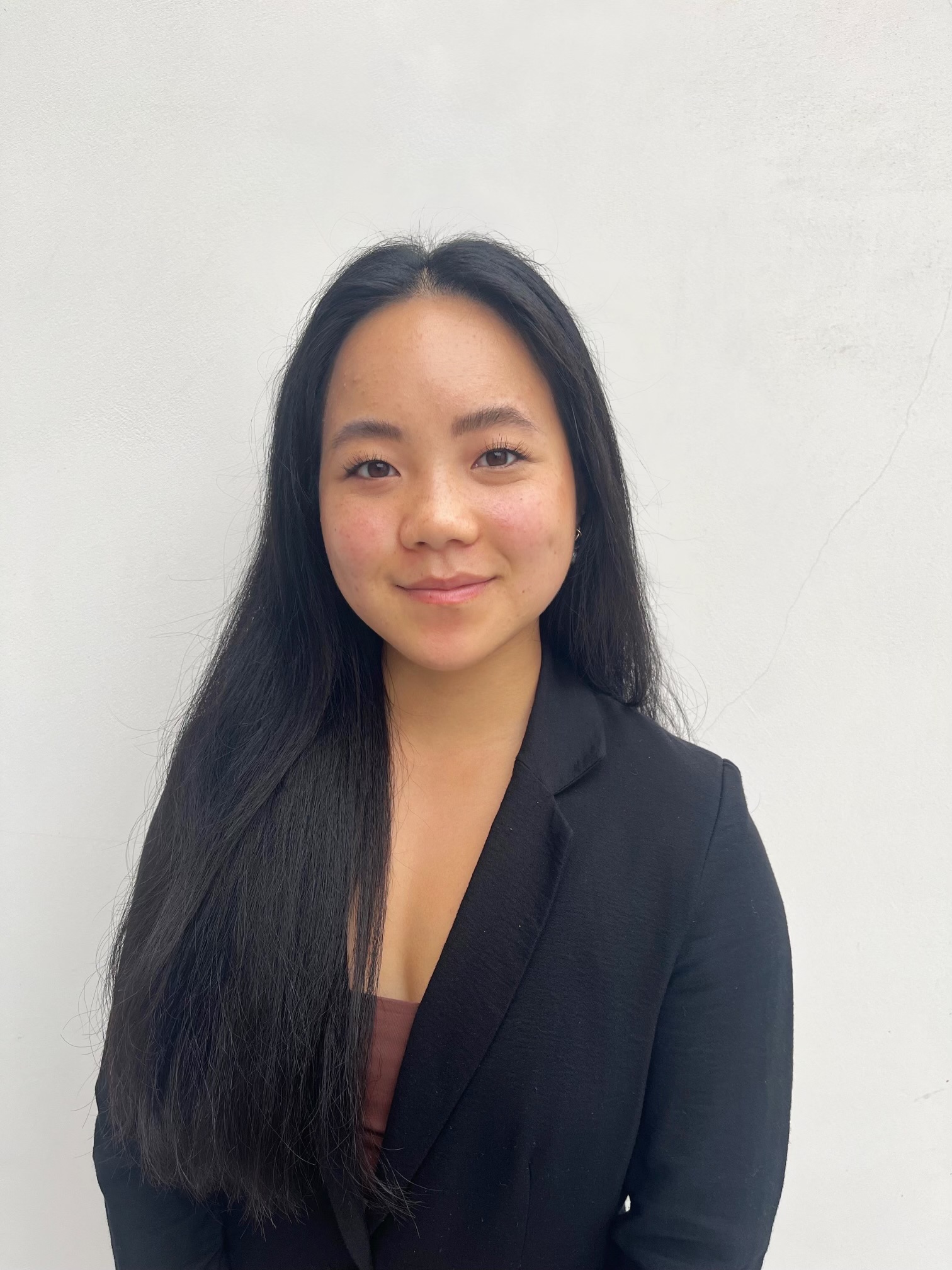
Faculty Mentor: Maria Pelucio, MD
Project Title: The Co-Production of Empathic Communication Interventions in Adolescents
Project Description: Mental health conditions are rising in adolescents and with existing research demonstrating the importance of social support in adolescent mental health, we chose to explore the impact of improving empathic communication skills in adolescents with the hope of fostering healthy relationships. This project aims to examine the impact of co-producing an educational intervention on empathic communication with adolescents. Through co-production, we hope to increase content relevancy and acceptability of the intervention among high school students.
2021-22 Scholars
Sarah Alsamman
Faculty Mentor: Wael Al-Delaimy, MD PhD
Project Title: Self-Compassion and Mental Health in Syrian Refugees
Project Description: The Syrian refugee crisis is the largest humanitarian emergency of our time. Since 2011, 6.6 million people have been displaced, 5.6 million of whom are hosted in neighboring countries Turkey, Lebanon, Jordan, Iraq, and Egypt. In the United States, there are more than 15,000 resettled Syrian refugees. Nations impacted by mass refugee migration must support the basic living, educational, healthcare, and mental health needs of these families. Psychological support tends to be scarce despite the large need. Refugees are exposed to high levels of stressors pre-migration and during the transition to a different country, including violence, torture, death of loved ones, and lack of basic resources. Post-migration, during resettlement, they face new challenges such as discrimination, language barriers, unemployment, and loneliness. As a result of the accumulation of pre-and post-migration stressors, refugee populations have a well-documented higher mental health morbidity with increased rates of PTSD, depression, and anxiety when compared to the general population. Self-compassion moderates the impacts of stressors on mental health. However, self-compassion and its relationship with mental health in the context of the traumatic experiences encountered by refugees has not been described. Our study seeks to assess the mental health status, self-compassion, and resilience of refugee adults living in Jordan and in the US. By characterizing the psychological effects of their trauma and learning more about what gives them strength and purpose we will be better prepared to create useful interventions that support this population.
Alan Aung
Faculty Mentor: Lisa Eyler, PhD
Project Title: Effects of Compassion Meditation and Repeated Mantras of Purpose on Undergraduate Medical Student Compassion and Burnout
Project Description: To test the efficacy of a short training on lovingkindness meditation that includes the creation of a personalized mantra that reminds each student about their motivations, purpose, or situations where they have felt strong empathy in the past. Students will be encouraged to repeat their mantra or meditation before seeing patients during their MS3 internal medicine rotations. We will compare outcomes related to compassionate patient care and self-reported compassion and burnout between students who receive the training versus those who do. Potential moderators and mediators of the training effects will be explored.
Jessica Della Ripa
Faculty Mentor: Julia Cormano, MD
Project Title: Cultivating Empathy and Compassion in Gestational Surrogacy
Project Description: The aim of my project is to gain insight into effective methods in teaching physician students empathy and compassion in gestational surrogacy. We will augment the curriculum of an existing session in the third-year OBGYN Clerkship. The session will educate students on the background of gestational surrogacy and provide instruction on how to improve students’ empathy and compassion skills when treating patients undergoing gestational surrogacy. The efficacy of this curriculum will be used to inform methods of teaching empathy and compassion in other areas of women’s health.
Morgan Desjardins
Faculty Mentor: Carla Demeterco-Berggren, MD
Project Title: Food Insecurity and Its Impact on Diabetes Management in Children with Type 1 and Type 2 Diabetes
Project Description: Diet is a pillar of good Type 1 or Type 2 Diabetes management but food instability is on the rise in the United States. Dr. Demeterco began screening her patients in the RCHSD Diabetes Clinic about their access to good nutrition. It became clear that health providers are uncomfortable administering the screening and that patients are uncomfortable sharing their food security status. Our project seeks to use compassion training to create a safe environment for providers conducting the survey and patients disclosing their food and nutrition needs. This allows us to provide patients and families better support through food resources.
Raneem Mokatrin
Faculty Mentor: Maja Marinkovic, MD
Project Title: The Effects of a Gender-Affirming Care Educational Module on Empathy, Knowledge and Implicit Bias among Medical Students
Project Description: This project aims to mitigate health disparities among the transgender and non-binary (TGNB) population by training future physicians to provide competent gender-affirming care rooted in cultural humility. Under the guidance of Dr. Maja Marinkovic, I am developing an educational module that will provide medical students with the conceptual framework and clinical tools necessary to deliver high-quality gender-affirming care. I will then assess the module’s impact on participant knowledge and empathy towards TGNB patients. Improvements in knowledge and empathy may ultimately reduce provider-dependent barriers to health equity, such as refusal of care, incorrect usage of pronouns, and ignorance of treatment guidelines.
Domonique Patterson
Faculty Mentor: Elaine Tanaka, MD
Project Title: Breast Cancer Decision Regret in Marginalized Communities
Project Description: Breast Cancer Decision Regret in Marginalized Communities: Racial and ethnic disparities in breast cancer outcomes are regrettably pronounced in the U.S overall and persist in smaller populations including California and San Diego county itself. The goal of this project is to help elucidate part of the many complex factors that contribute to this disparity by exploring what influences treatment decision regret during breast cancer survivorship. Understanding what leads to decision regret can help improve health outcomes, quality of life, and empower breast cancer patients in their initial decision-making processes as well as inform physicians about how to provide equitable and compassionate care to these patients.
Danielle Schurr
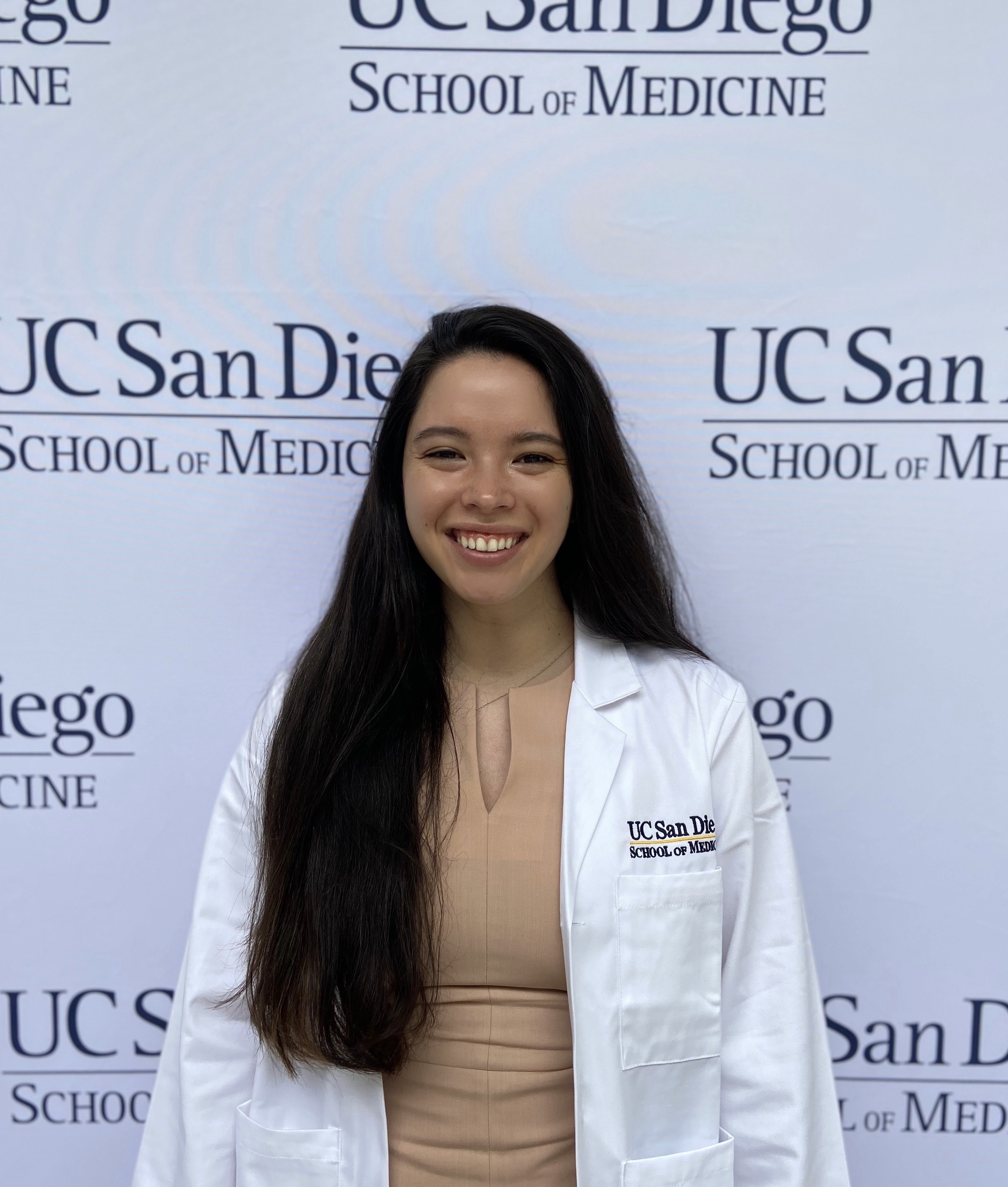
Faculty Mentor: Eric Halgren, PhD and Sharona Ben-Haim, MD
Project Title: Human Brain Activity Mapping for Empathy and Compassion
Project Description: Understanding that empathy is a critical component of human social interaction and cognition, both in informal and occupational contexts, the goal of our study is to map the empathic pathways in the brain using tasks to elicit neural activity. We hope to elicit empathic pain by presenting videos of individuals experiencing pain, modulate perceived pain through contextual information, identify its neural signature, and compare with that of firsthand experience. This will be done through validated tasks and mapping of the neural representation at relevant limbic sites of sustained pain resulting from acute discomfort elicited by bright lights or loud sounds.
Jin Su
Faculty Mentor: Natalie Rodriguez, MD
Project Title: Examining the effect of mindful self-compassion as a restorative justice practice for adolescents
Project Description: Punitive disciplinary measures (e.g. detention, suspension) are consistently associated with negative academic outcomes, including dropping out of school. These passive processes do not provide students opportunities to actively learn and apply coping skills required to recognize and regulate the behaviors and attitudes which may have contributed to the disciplinary consequences. Meditation and mindfulness practice - shown to be an effective intervention in the treatment of physiologic, psychosocial, and behavioral conditions among youth - could potentially serve as an alternative, non-punitive intervention. This project aims to examine how mindful self-compassion translates to behavioral changes that affect disciplinary records in a school setting amongst adolescents.
Nicole Sun
Faculty Mentor: Mario Bialostozky, MD
Project Title: Physician Well-Being, Empathy, and the EHR: Investigating the Potential Impact of EHR Burden from a QI Framework
Project Description: This project is an extension of a study within the Department of Pediatrics at Rady Children’s Hospital that identified specific divisions with both high physician burnout reports and high Electronic Health Record utilization metrics. Using this initial study as a foundation, our project aims to further assess the potential relationship between high ratings in specific EHR categories and resultant self-reported physician burnout and empathy scores. We will be employing this data to construct targeted interventions to reduce the impact of the EHR in these realms while ultimately evaluating the potential impact this has on physician well-being and empathetic capacity pre-and post-intervention.
Nicholas Wu
Faculty Mentor: Veronica Cardenas, PhD
Project Title: Examinations of Physicians Perspectives on Compassion and Cultural Humility in EOL Discussions
Project Description: Conducting difficult conversations with patients in a compassionate manner has been shown to have positive impacts on provider-patient relationships and patient quality of life, particularly in the context of end-of-life care. This project aims to identify obstacles that impact a physician’s ability to carry out these types of conversations with culturally diverse cancer patients and subsequently determine ways in which compassion can be better incorporated into the process. We will be interviewing physicians in the UC San Diego Health Care System and asking them to share their perspectives on difficult conversations, burnout, cultural humility, and other factors that affect their experience and interactions with patients.
2020-21 Scholars
Caitlyn Belza
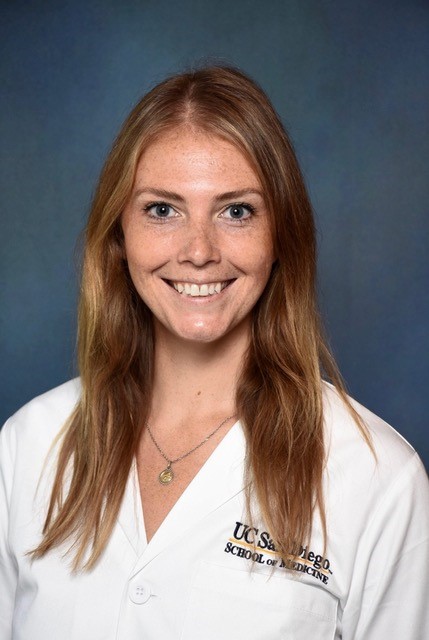
Project Title: The effects of compassion and empathy on wellness in an adolescent population during a global crisis
Faculty Mentor: Michelle Johnson, MD
Project Description: As a result of the current global crisis, many have suffered from stress, anxiety and emotional anguish while enduring self-isolation and social distancing. This outreach project was designed to integrate mindful self-compassion into the routines of adolescents through a framework that promotes mental health, emotional resilience and wellness. These practices will be orchestrated though weekly wellness check-ins involving guided meditation, gratitude journaling, and open discussion regarding various tools for improved wellbeing. By utilizing a quality improvement survey, I will evaluate the relationship between mindful self-compassion and self-reported assessment of lifestyle wellness in a high school population. The goal of this study is to create a lasting positive impact for the participants, while testing a hypothesis that potentially provides a scalable solution to the struggle faced by adolescents worldwide.
Reem Halabi
Project Title: The role of volunteering at free clinics in reinforcing empathy and combatting burnout among medical students.
Faculty Mentor: Lisa Eyler, PhD
Project Description: Student-Run Free Clinics (SRFC) provide healthcare access to underserved patients who would not otherwise be able to afford medical care. They also serve as a powerful educational tool for medical students, allowing them to gain early exposure to the clinical setting and to have an active role in taking care of patients, often from marginalized and minoritized groups. There have been few studies, however, investigating the effect of involvement in SRFC on student’s attitudes towards others and their well-being. Our study focuses on assessing empathy, resilience, and burnout among rising MS2 and MS4 students at the UCSD SOM via an online survey. Specifically, we are investigating the role of volunteerism at the UCSD student-run free clinics (SRFC) in cultivating empathy and resilience and in combating burnout among medical students. We will also examine whether relationships of SRFC volunteerism to empathy, resilience and burnout differe depending on the year in medical school. We also hope to continue this study with a second assessment one year later to examine within-person change. Results should help to inform efforts to enhance empathy and reduce burnout throughout the medical curriculum.
Rahil Hernandez & Alec Terrana

Rahil Hernandez
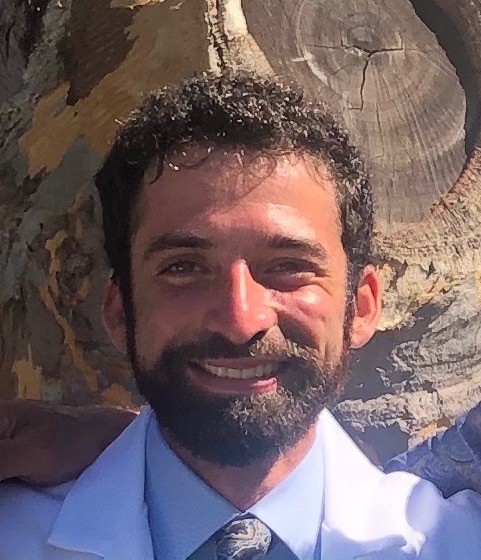
Alec Terrana
Project Title: Leading with Compassionate Care: Evaluating the Impact of a Mindful Student Leadership, Program on Health Sciences Graduate Students
Faculty Mentor: Deepa Sannidhi
Project Description: “Leading with Compassionate Care” is a pilot study aimed towards developing, implementing, and evaluating a mindful leadership course targeted specifically for UCSD’s medical, pharmacy, and public health students. This 8-week elective will educate students in using mindfulness techniques to resist exacerbating symptoms of stress, and burnout. Furthermore, this course will help students strengthen their capacity for compassion and how to positively influence others towards more mindful behavior. Alec Terrana and Rahil Hernandez will assess participants’ acquisition of these skills qualitatively and quantitatively to strengthen the program for future offerings that further promote mindful leadership.
Kyleigh Kirbach
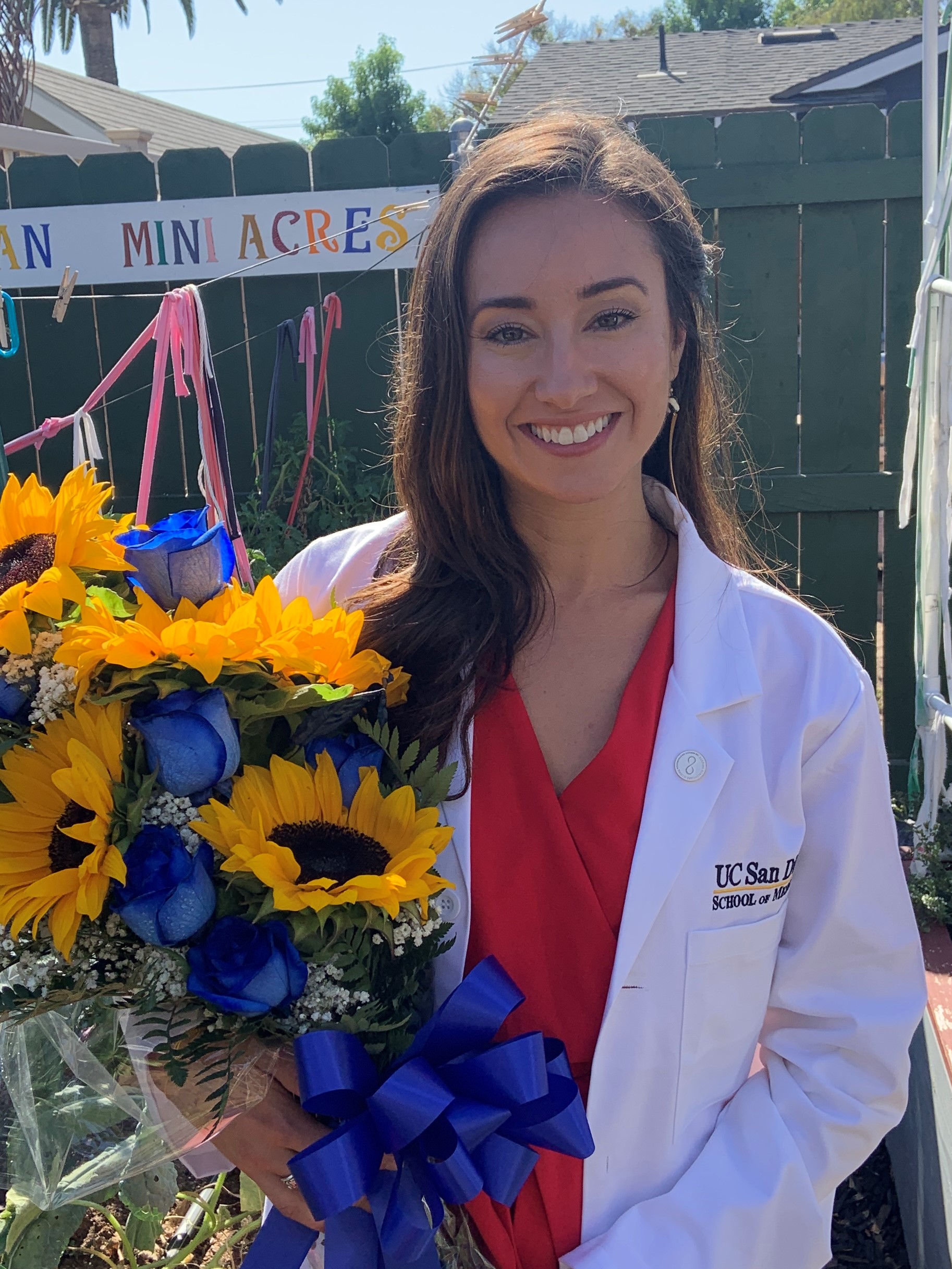
Project Title: Community Needs Assessment of Lifestyle Medicine Resources in San Diego County for the Medically Underserved Using the PRECEDE- PROCEED Model
Faculty Mentor: Deepa Sannidhi
Project Description: Children in medically underserved areas of San Diego County are twice as likely to be overweight or obese than those with adequate access to care, and it is known that obesity increases one's risk for depression, type 2 diabetes, heart disease, and cancer. Access to community programs that provide education and services focused on the 6 pillars of lifestyle medicine - healthy eating, physical activity, sleep hygiene, stress management, relationship building, and reduction of risky behaviors - are essential for the adoption of healthy lifestyle habits and prevention and management of obesity. Through a partnership with the Childhood Obesity Initiative, this project will map the lifestyle medicine resources available to children in underserved communities of San Diego County, assess regional gaps in community providers and services, and build on an existing clinic-community referral system to improve community access to lifestyle medicine resources for children.
Patrick Loehr
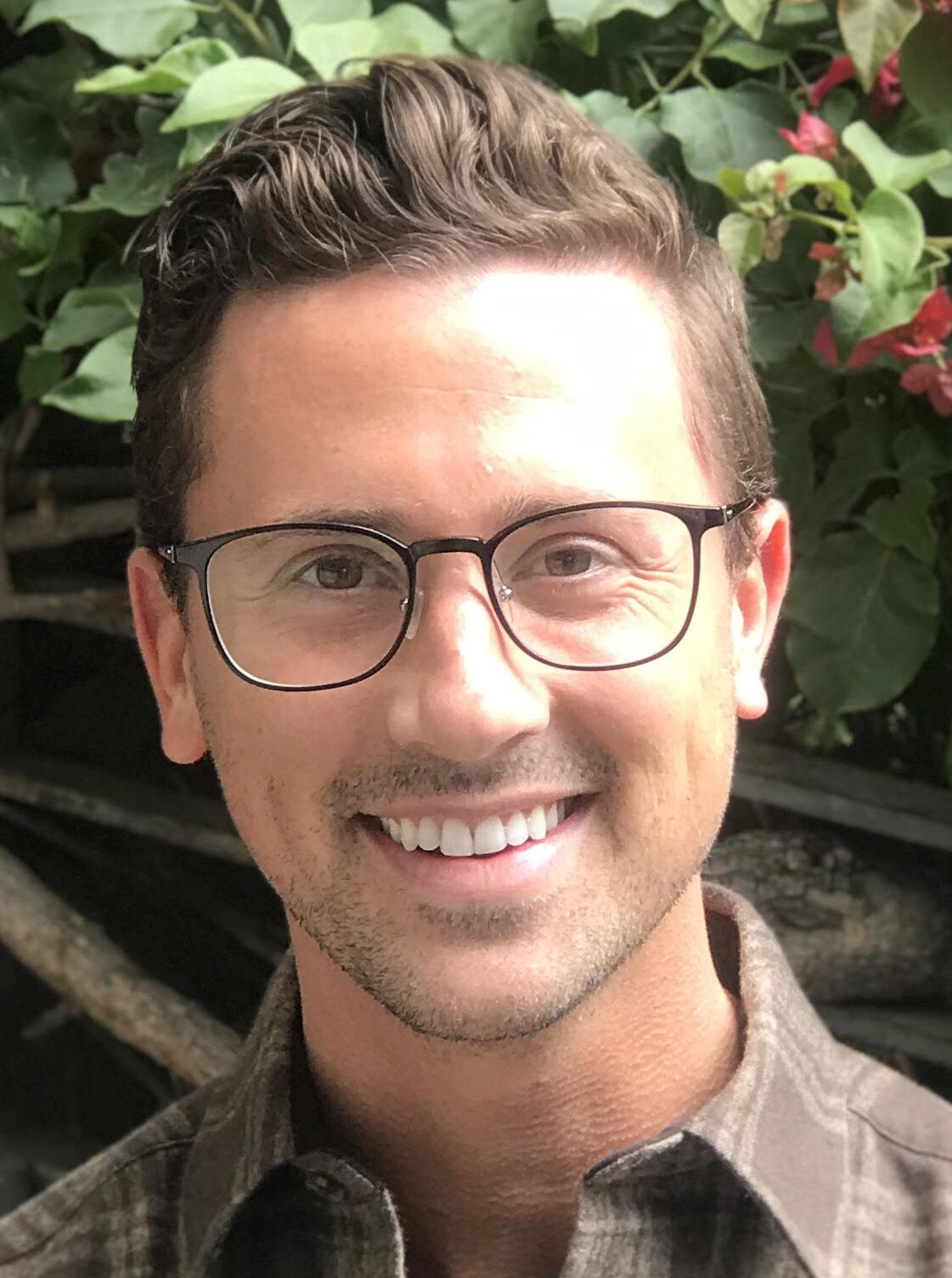
Project Title: Defining and Assessing Empathy in Preclinical Medical Education through Group Objective Structured Clinical, Evaluations (GOSCEs) and Objective Structured Clinical Evaluations (OSCEs) at UCSD School of Medicine
Faculty Mentor: Charles Goldberg, MD
Project Description: The goal of this project is twofold: first, to operationalize empathy within the scope of preclinical medical education at UCSD School of Medicine; second, to develop a method to formally assess in an ongoing and constructive fashion a preclinical medical student’s ability to demonstrate empathy in GOSCEs and OSCEs. To this end, I will collaborate with clinicians and educators who contribute their perspective to the pre-clinical medical curriculum at the UCSD School of Medicine, including the Clinical Foundations course directors; faculty and administrators who work in the capacity of Equity, Diversity, and Inclusion; and the Professional Development Center staff.
Eric Miller
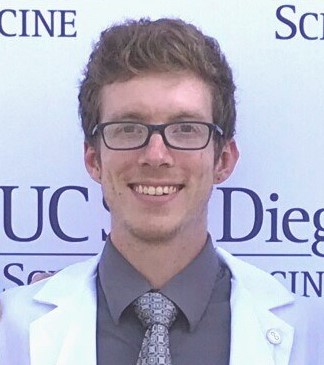
Project Title: Mixed-methods analysis of emotinal wellbeing and mental health among adolescents in the context of the social environment and a digital mindfulness-based intervention
Faculty Mentor: Janis H. Jenkins, PhD, MD
Project Description: We are studying how adolescents’ mental health and emotional wellbeing are influenced by their social environment, including sources of inequality and structural violence, as well as sources of socioemotional resilience. Other members of our research group have collected a rich dataset among a group of middle school students in Southern California, the majority of whom are classified as socioeconomically disadvantaged. For this project, I will be analyzing these data in novel ways, utilizing a combination of qualitative and quantitative analytical methodologies. In addition, I will be analyzing data from a study evaluating a mobile meditation app for improving adolescents’ mental health and emotional wellbeing. Working alongside a talented team of anthropologists and global health researchers, I hope to contribute to our understanding of the social factors affecting adolescent mental health
Haley Moss

Project Title: Teaching Compassion at the UCSD Student Run Free Clinic Project
Faculty Mentor: Natalie Rodriguez, MD
Project Description: One tenet of the UC San Diego Student Run Free Clinic is Humanism. This means the actions of those working in the clinic should be filled with compassion and empathy, respect, and self-awareness. Compassion is an important characteristic for medical providers to have as it leads to positive patient outcomes and improved provider wellness by fighting physician burnout. We will be creating, implementing, and longitudinally evaluating a curriculum that teaches compassion for others and self to first- and second-year medical students enrolled in the Community Advocacy Free-Clinic I elective at the UCSD School of Medicine.
Vojislav Maric
Project Title: A novel digital intervention for athletes integrating meditative breath focus and positive affect reflections
Faculty Mentor: Jyoti Mishra, PhD
Project Description: Healthy brains are wired to effectively and efficiently process information. These complex systems simultaneously ensure stability as well as flexibility, and reflect an essential capacity to adapt to constantly changing environmental and motivational contexts. This dynamic ability of human brains requiring multiple interacting mental operations is referred to as cognitive control. In sports, there is a mantra that the game is 90% mental, yet 90% of elite-athletic training is centered around physical training and optimization. Many aspects of cognitive control are vitally important for optimal athletic performance; hence, better understanding of cognitive control in these individuals, as well as targeting these cognitive abilities in interventions, may help optimize elite athletic performance. This study integrates BrainE, a mindfulness-based digital neuro-cognitive platform designed at UC San Diego, positive effect journaling, and an additional real-world physical performance assessment to better understand cognitive control networks and establish a novel neuroplasticity-targeted intervention that will provide direct athletic and cognitive benefit to critical aspects of elite-athlete performance.
In this study we aim to study a digital mindfulness-based intervention with additional compassion and positive effect journaling to benefit various aspects of cognitive control. Since this intervention can be administered completely digitally it is able to reach many patients and individuals regardless of socioeconomic status, race, geographic location and other common barriers to mental health care. In this sense, we hope to administer the intervention across many populations and help bridge the gap in mental health care.
Shelby Warren
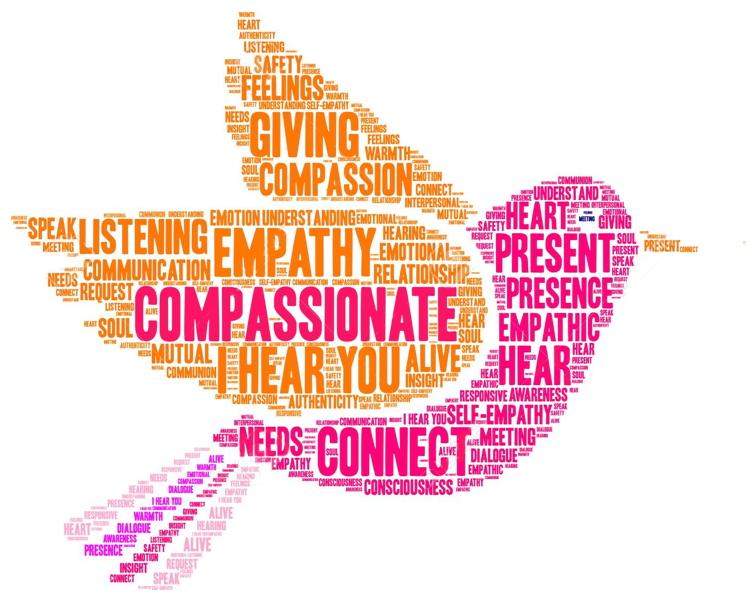
Project Title: What Does Compassion Mean to Uninsured and Under-Resourced Communities of Color? Training Physicians to be Compassionate
Faculty Mentor: Elaine Tanaka, MD
Project Description: Despite the fact that "compassion" is frequently used as a metric for quality medical care, there is little research that supports what compassion means from the patient perspective. Rather, the majority of research publications seeking to understand compassion in patient-provider relationships rely upon theoretical definitions of compassion, often without hearing from the recipients of compassion themselves: patients. This study aims to understand what compassion means to uninsured and/or under-resourced Communities of Color, and will focus on gaining insight from Black American communities with the intent to utilize the results to create community-informed compassion training resources for health care providers.
All programs and initiatives coordinated by the Sanford Institute for Empathy and Compassion are designed and implemented in full compliance with Proposition 209 and the University of California Anti-Discrimination Policy.
In accordance with applicable Federal and State law and University policy, the University of California does not discriminate, or grant preferences, on the basis of race, color, national origin, religion, sex, disability, and/or other protected categories.
More information about Proposition 209 can be found here. More information about the University of California Anti-Discrimination Policy can be found here.
